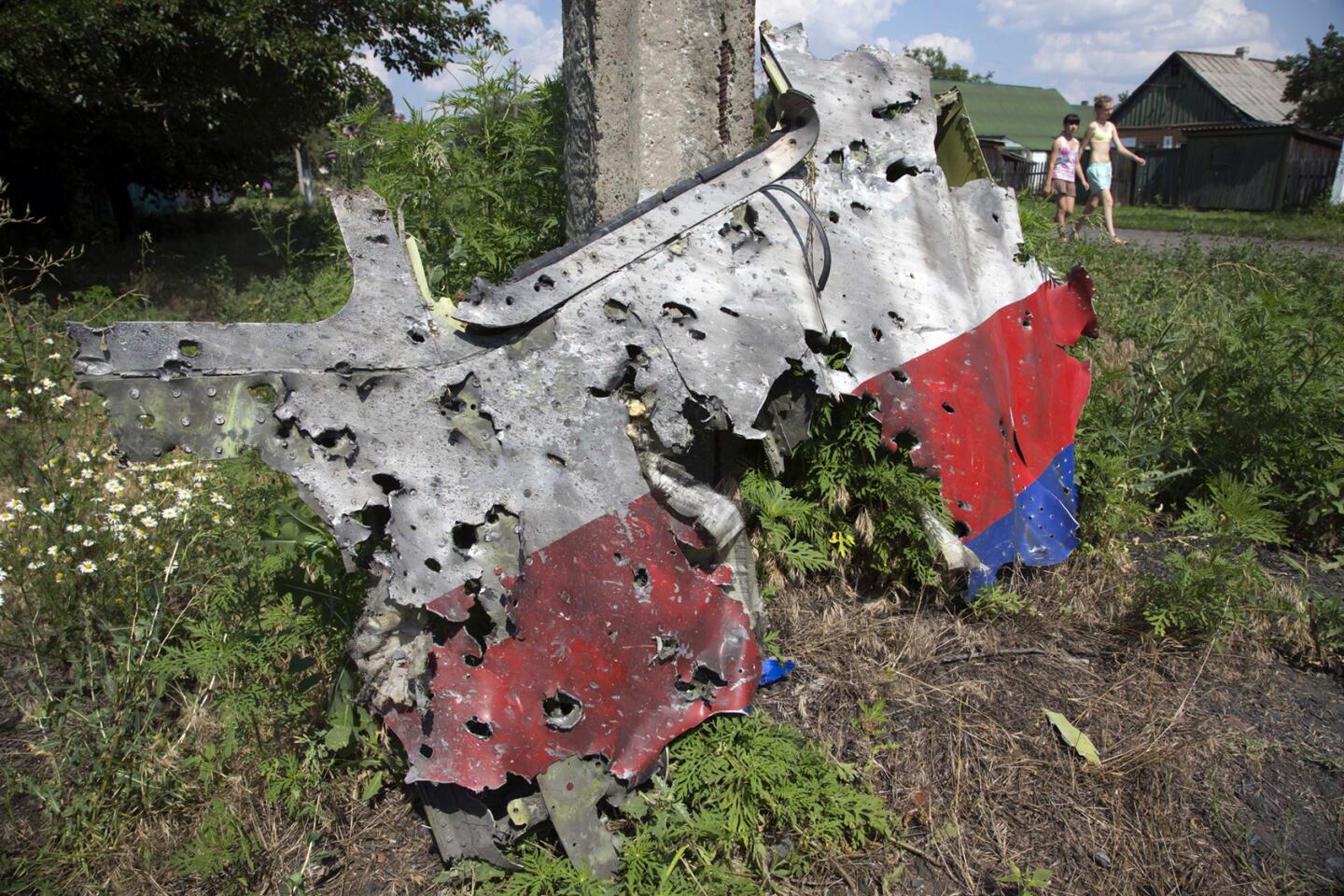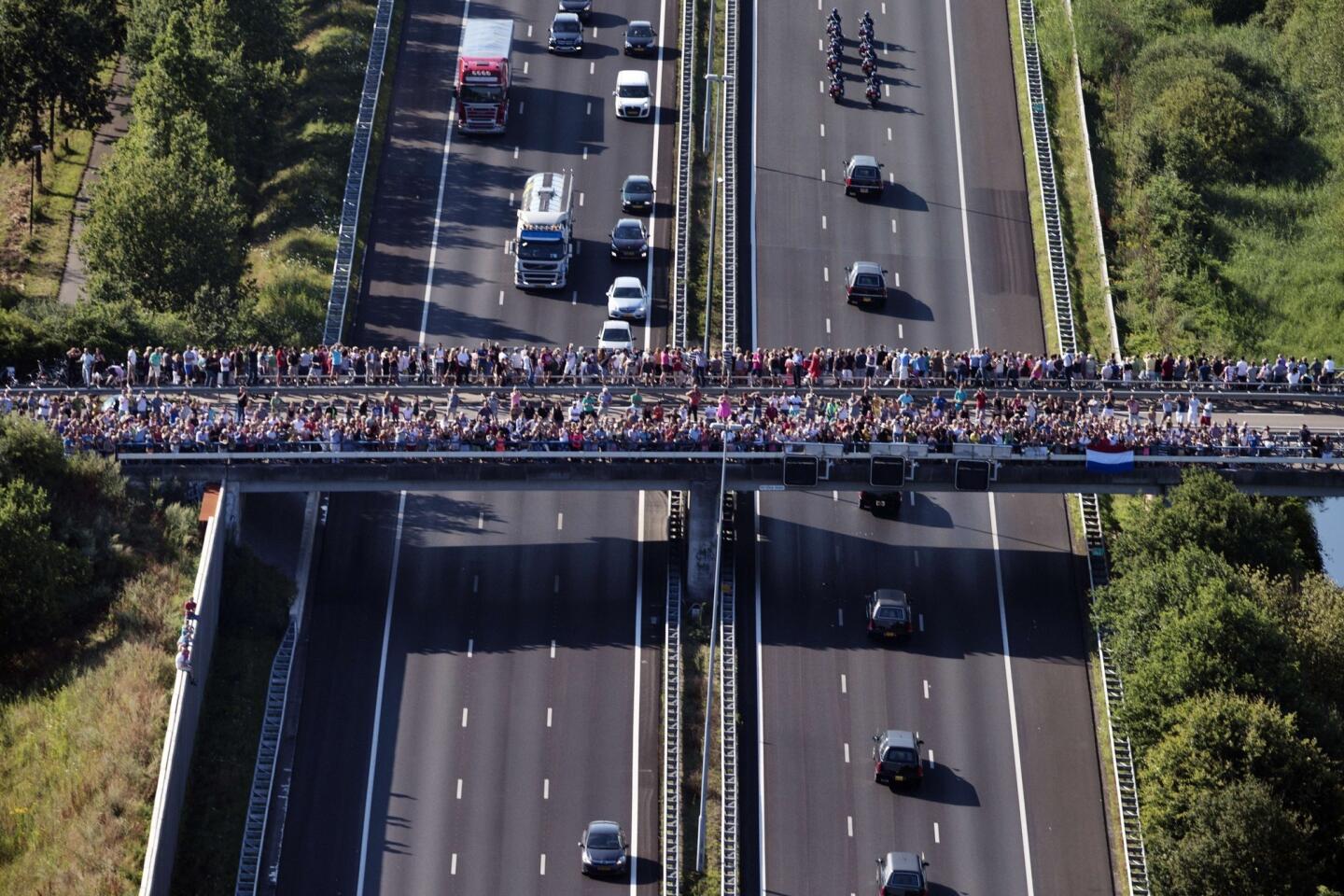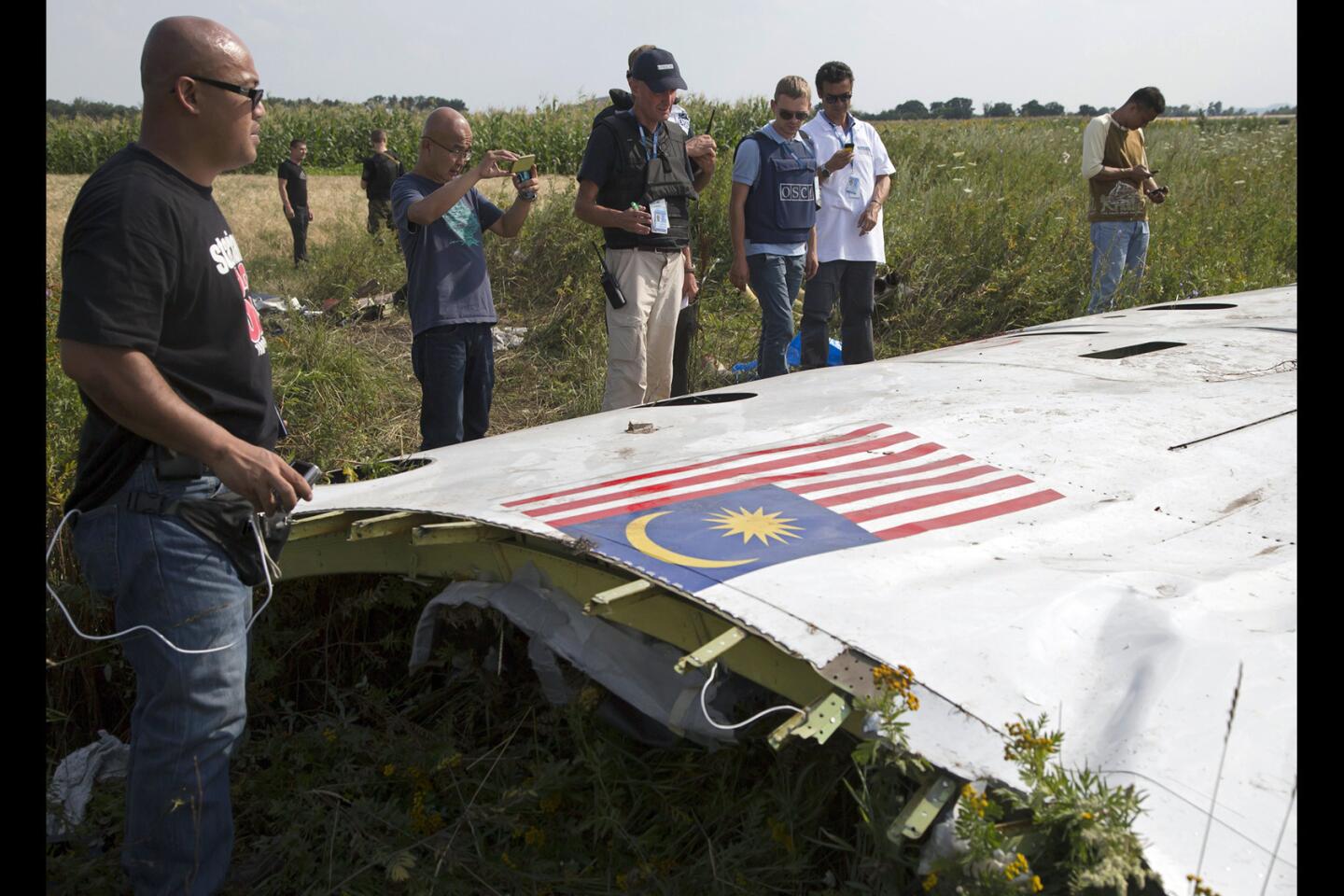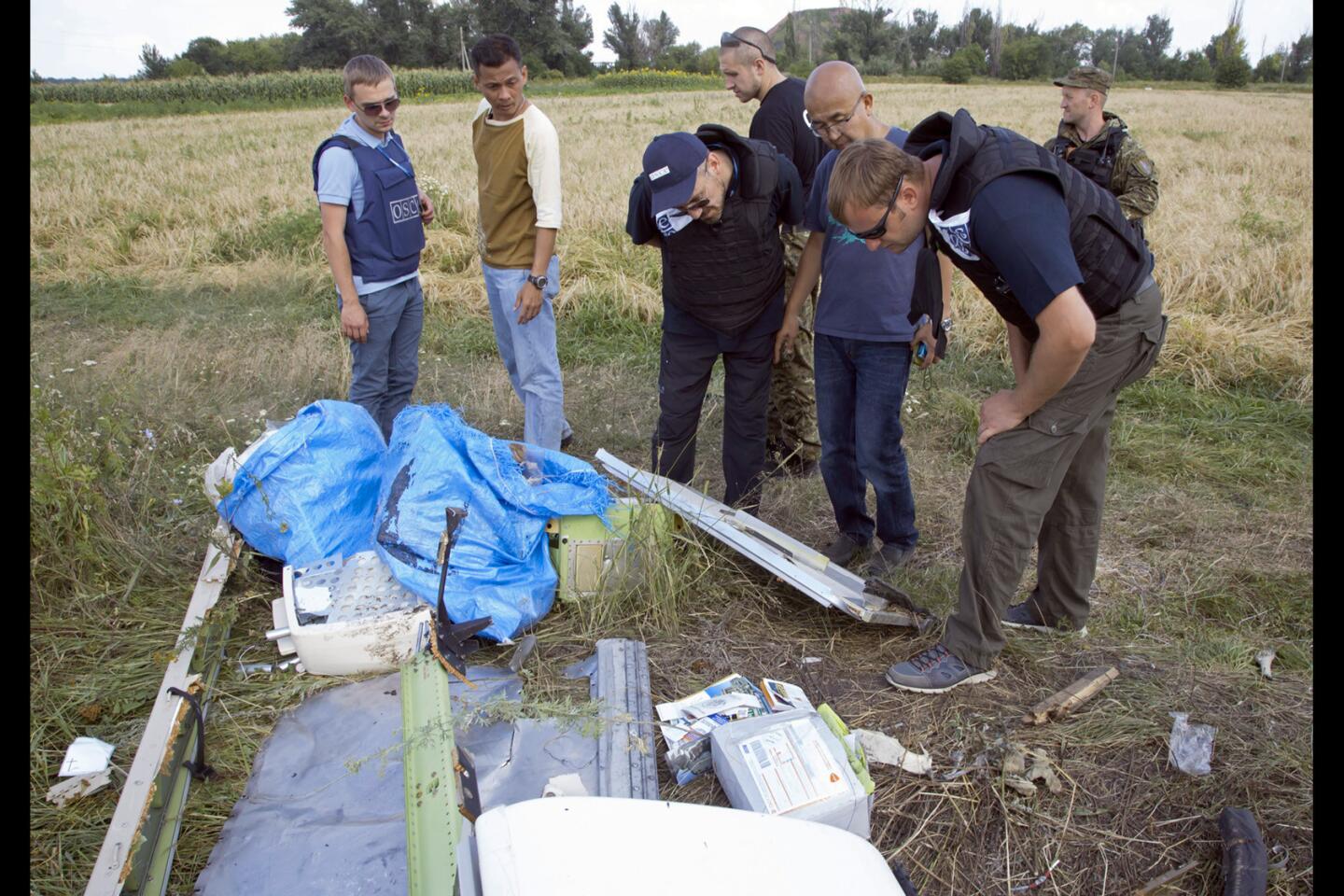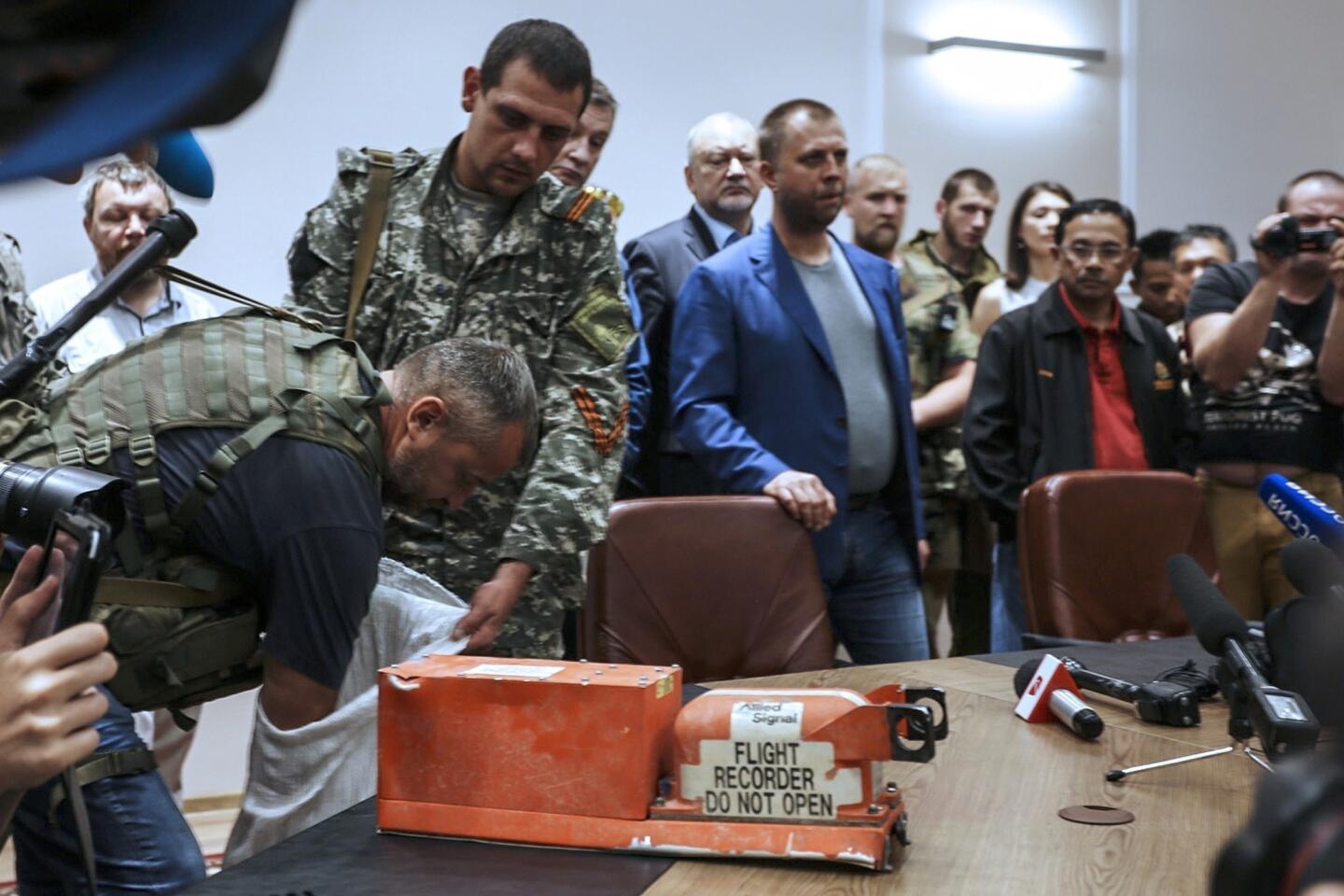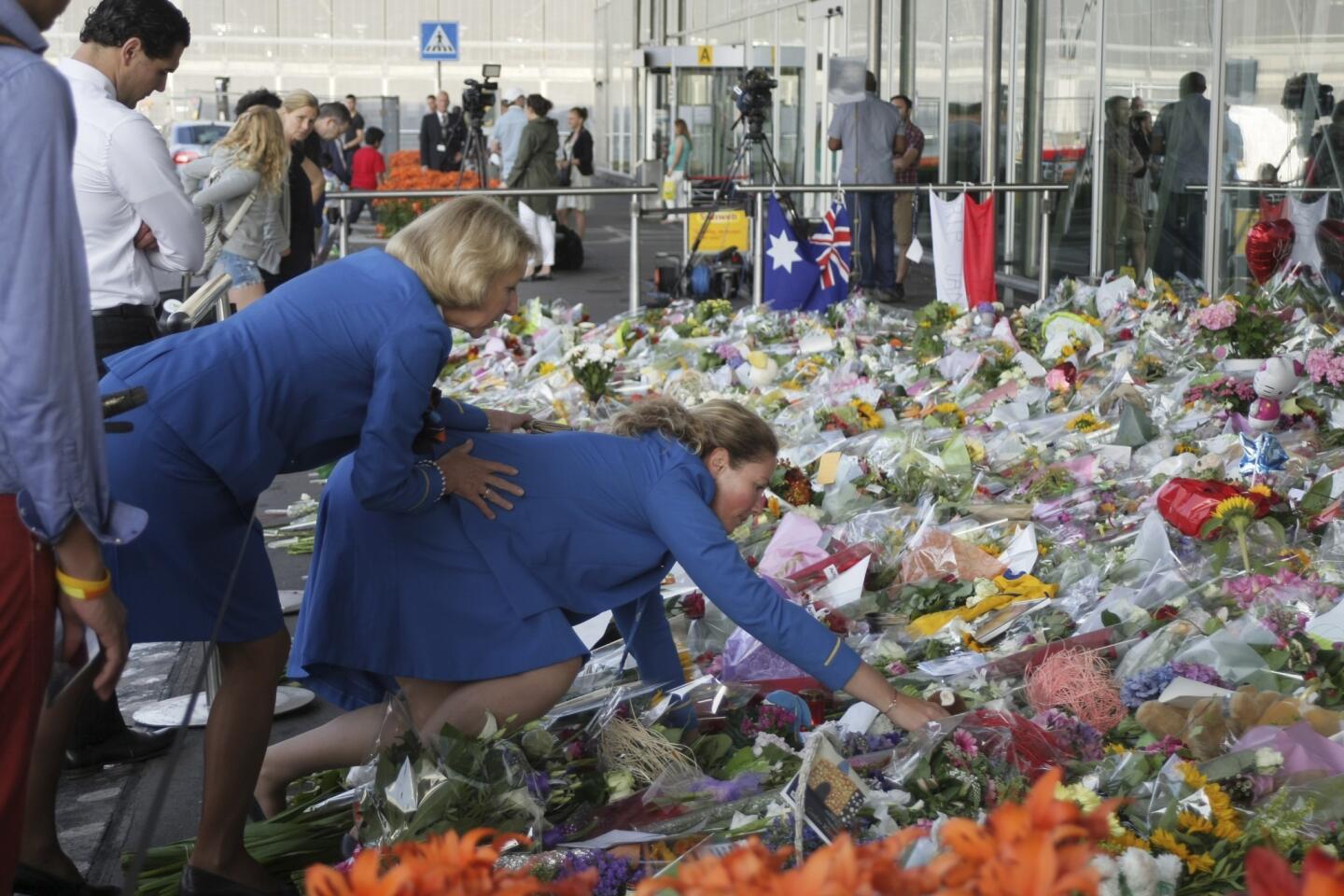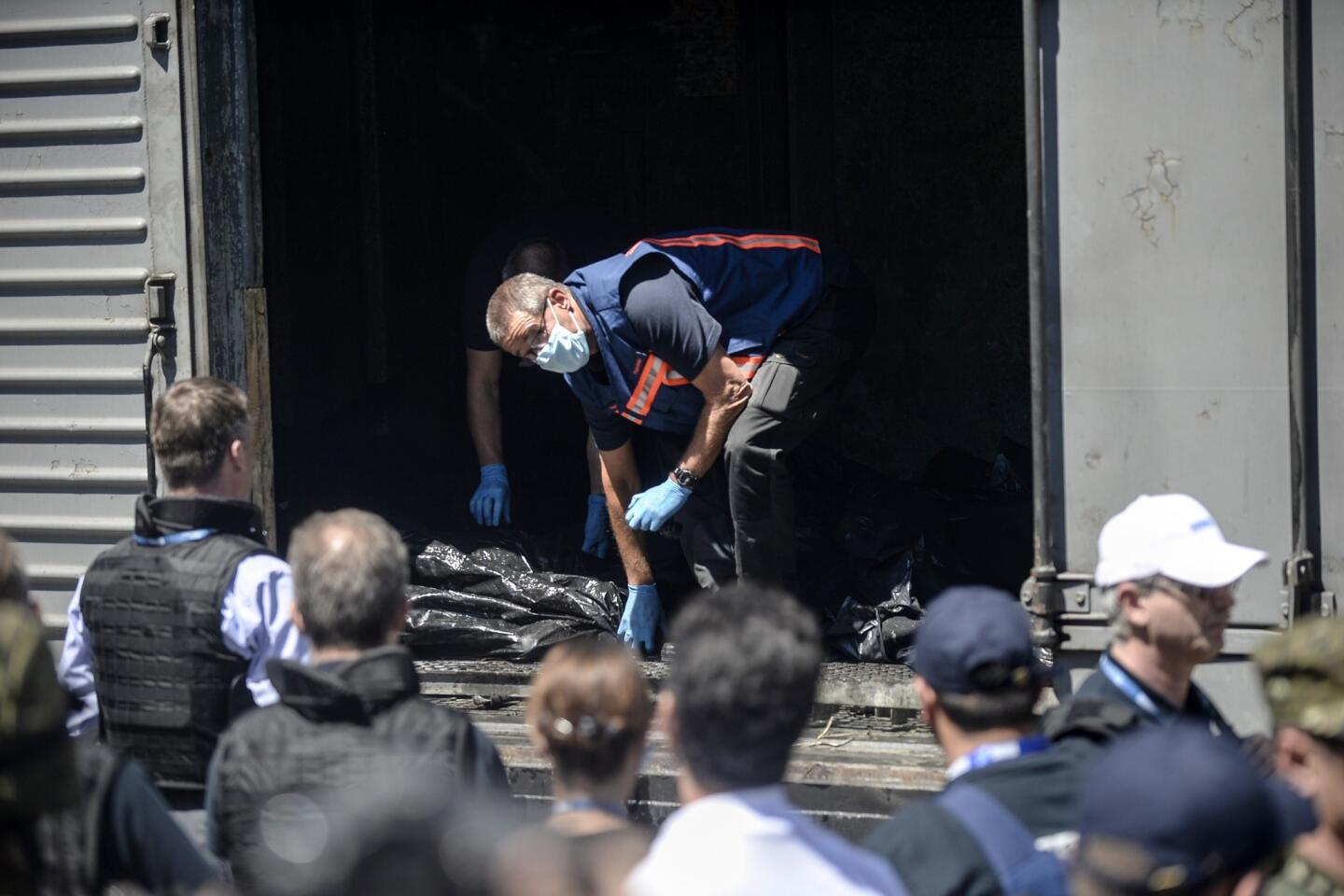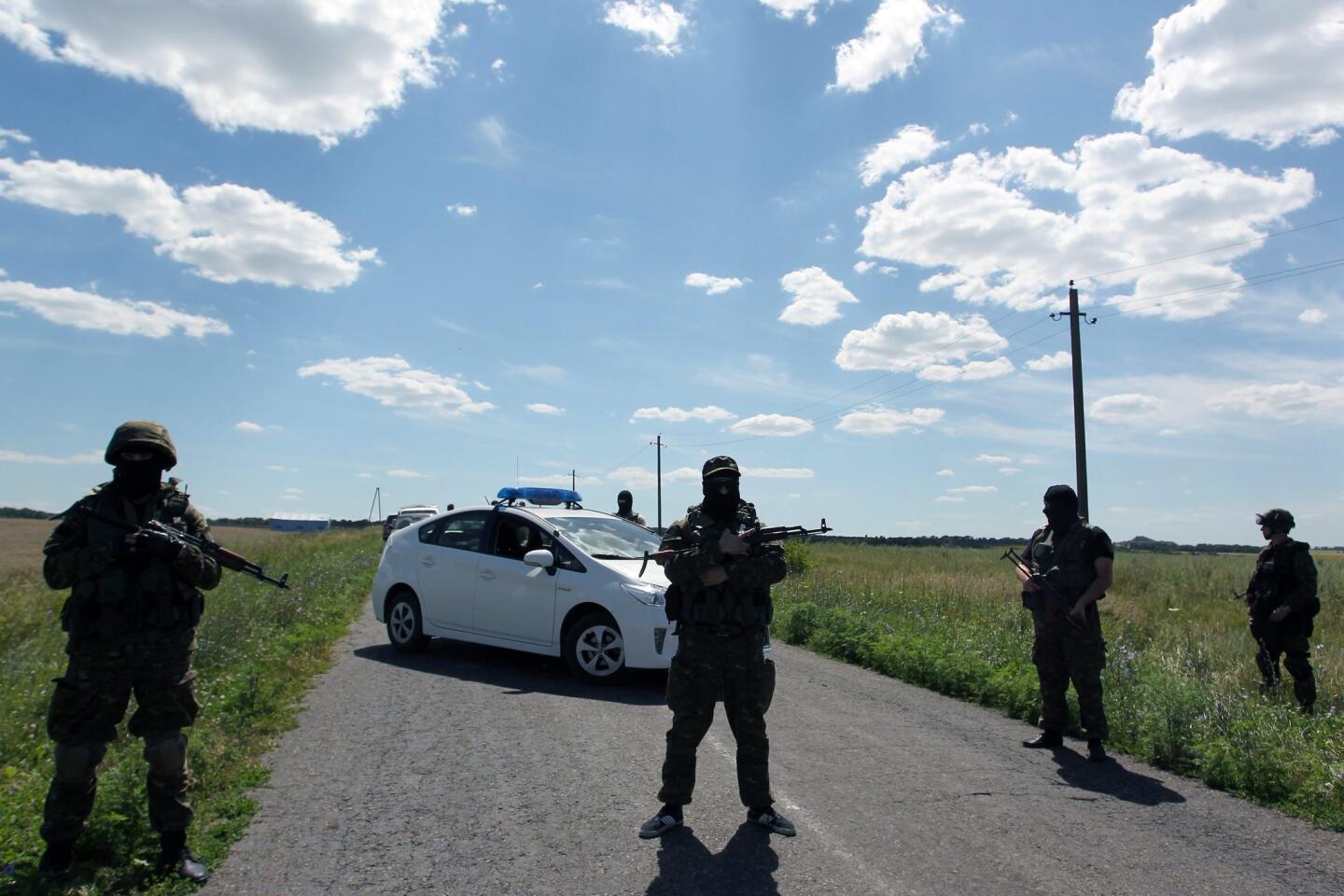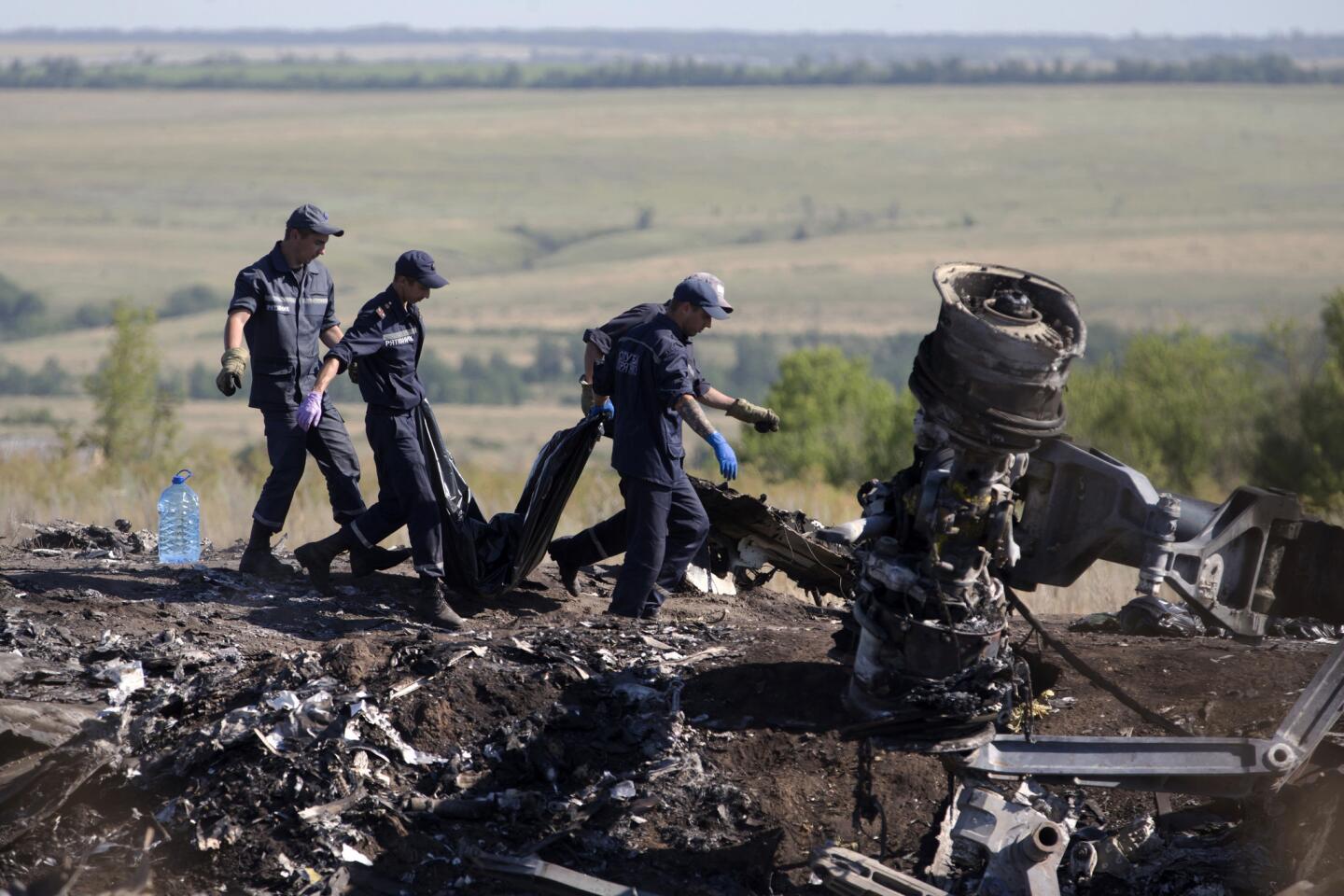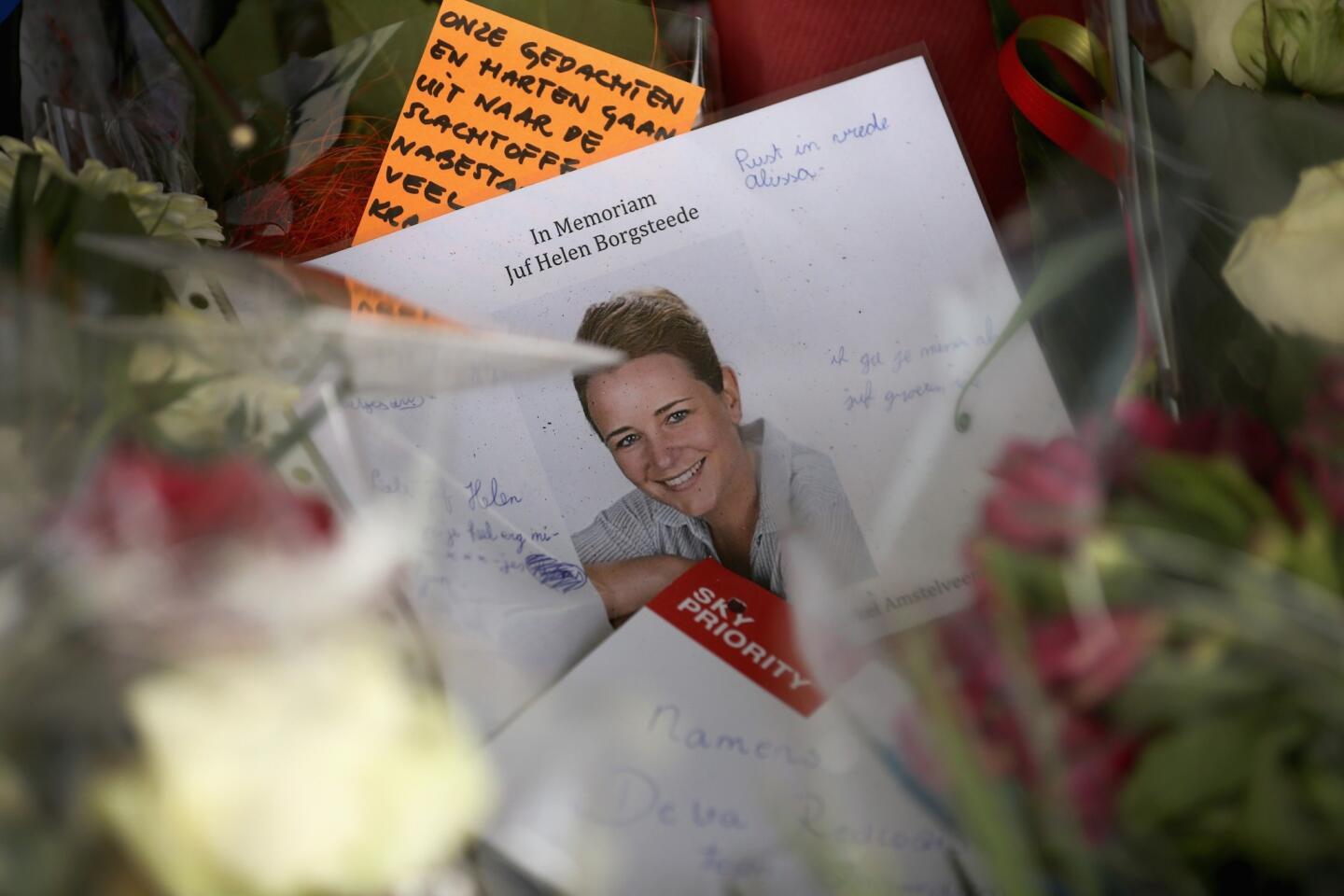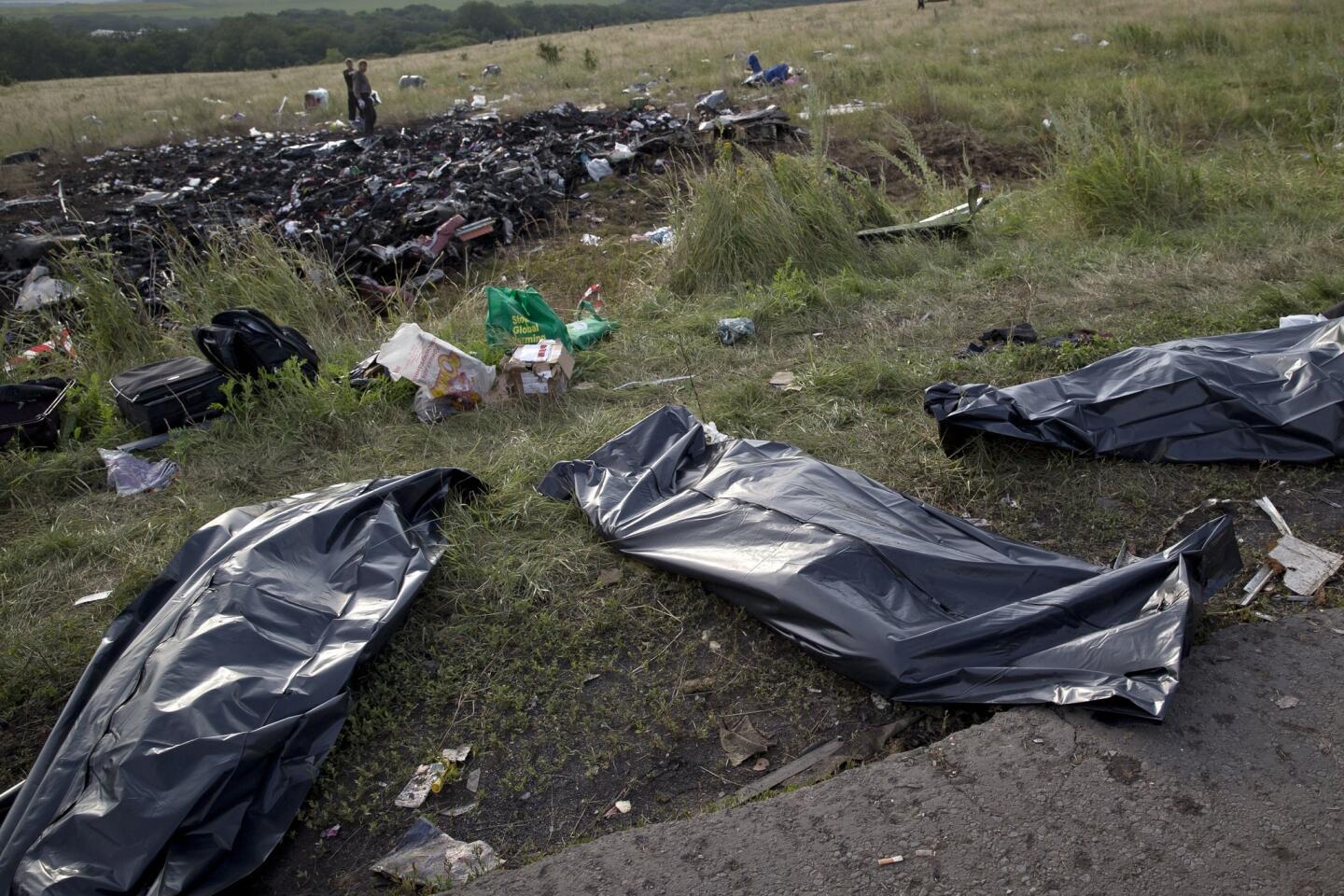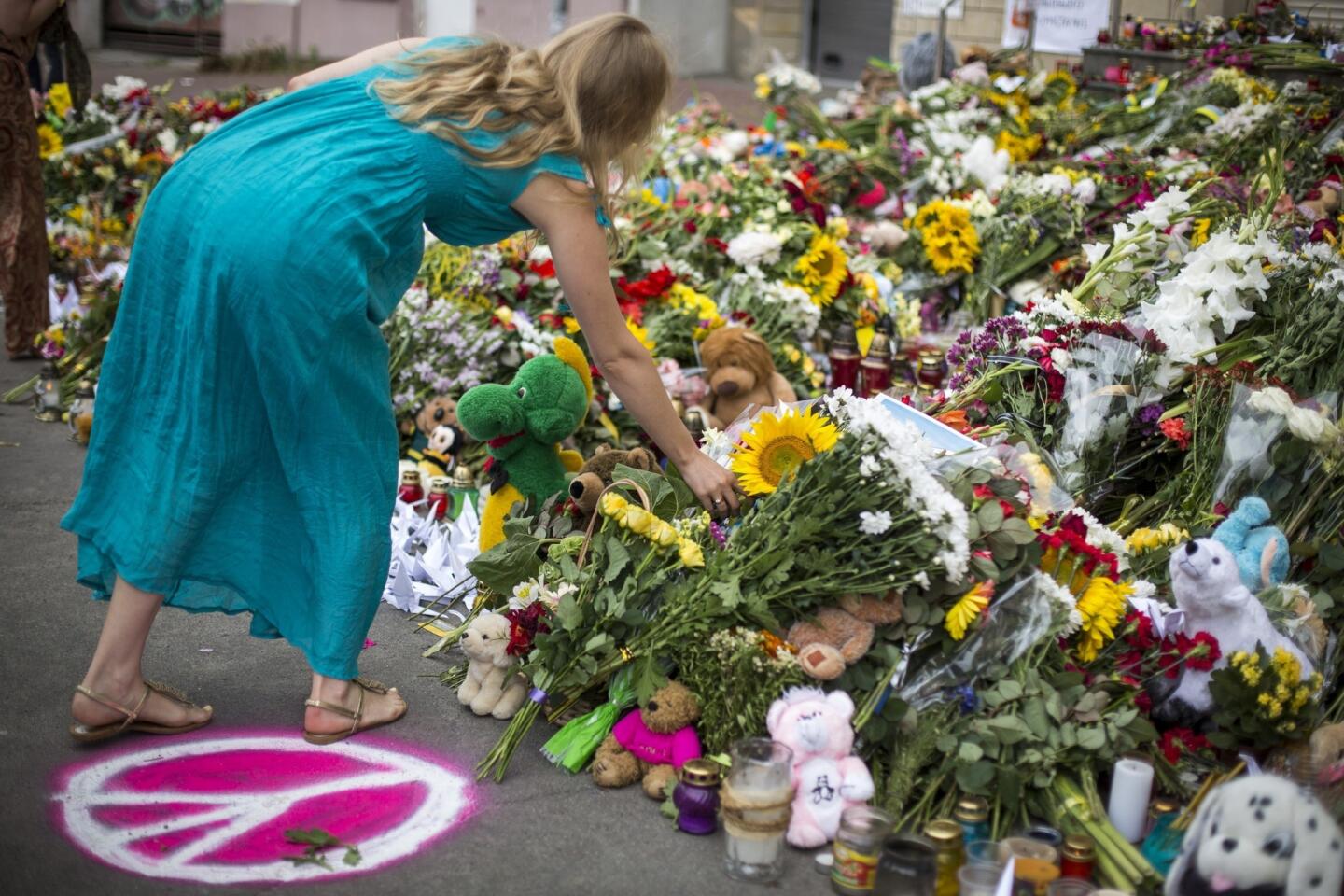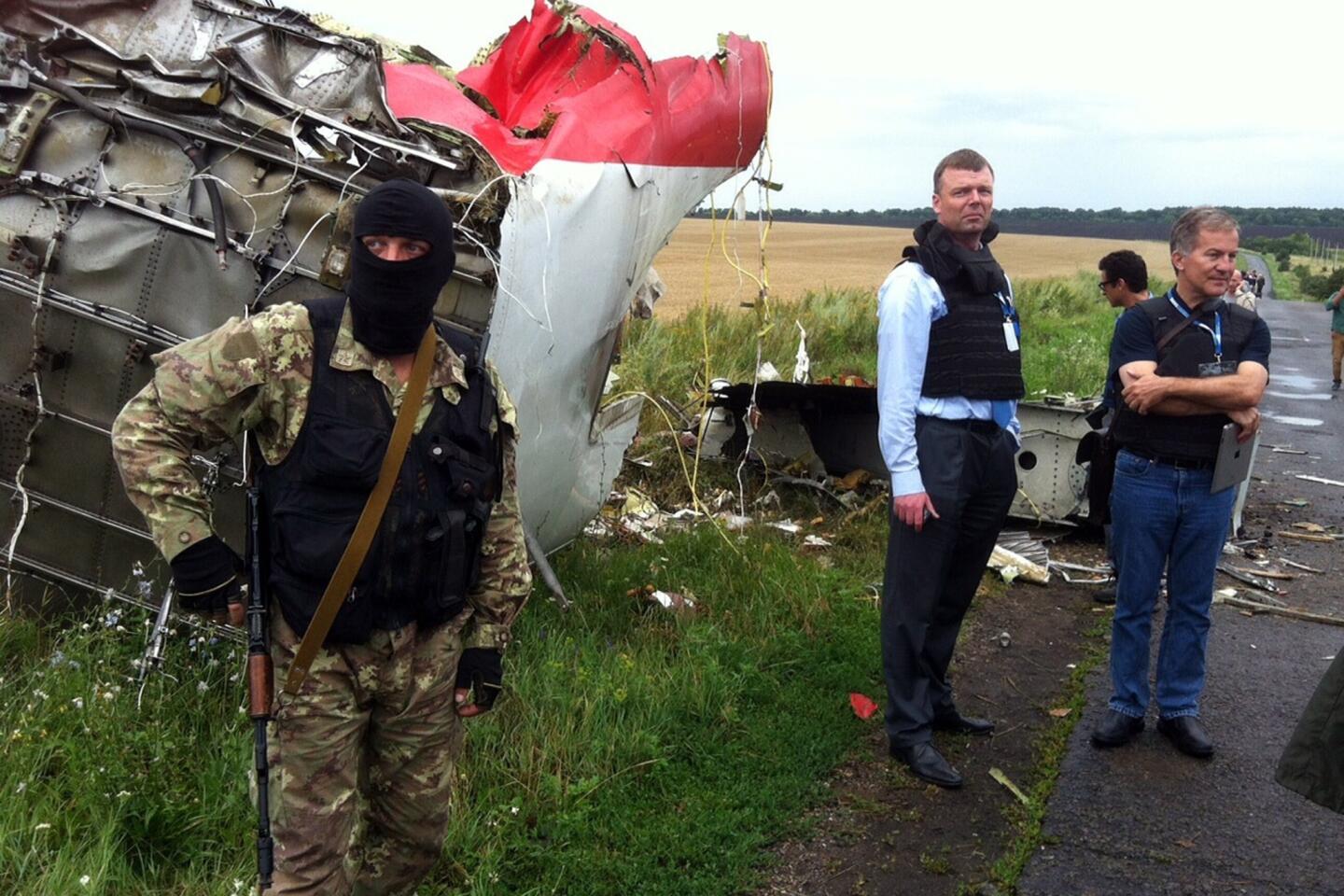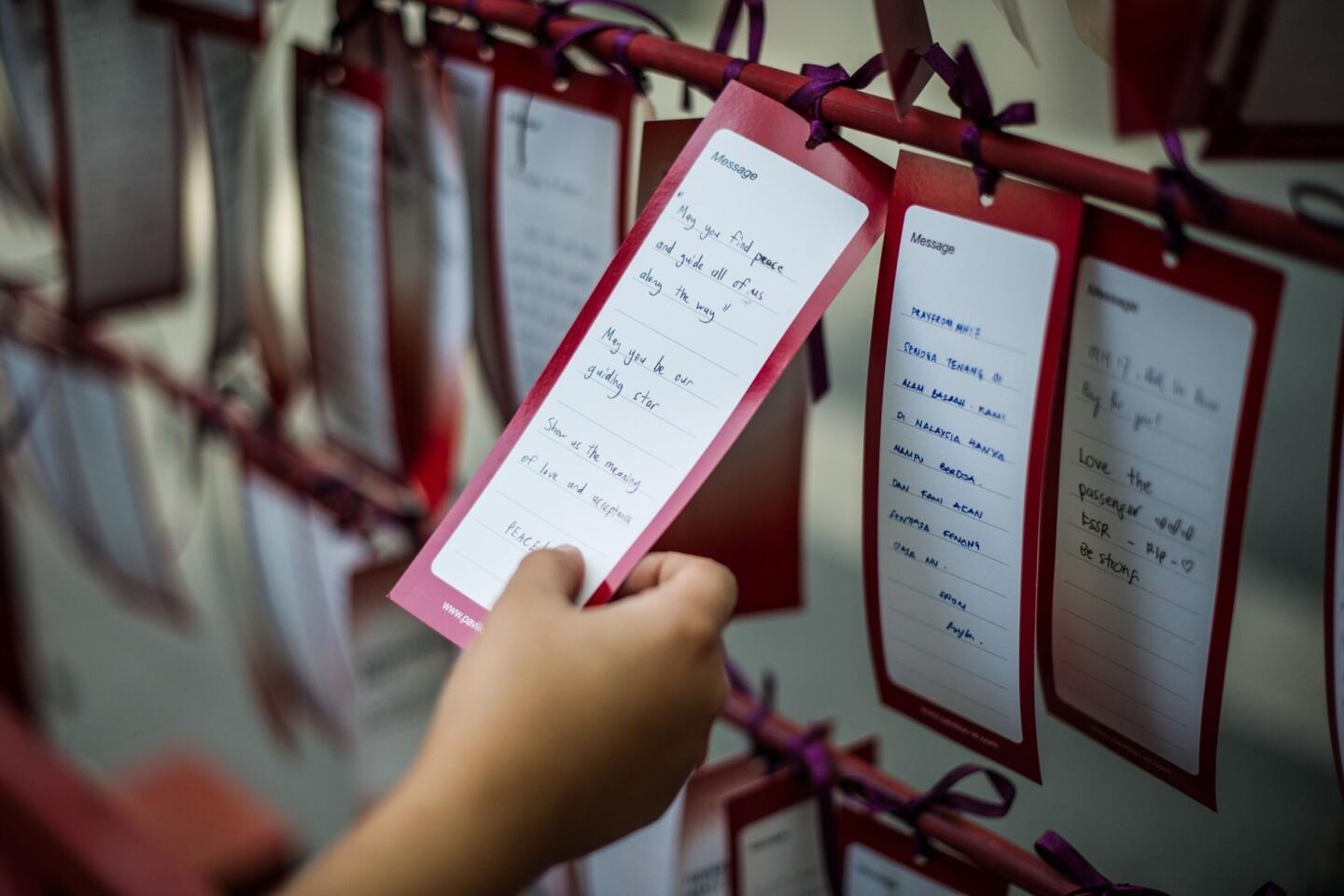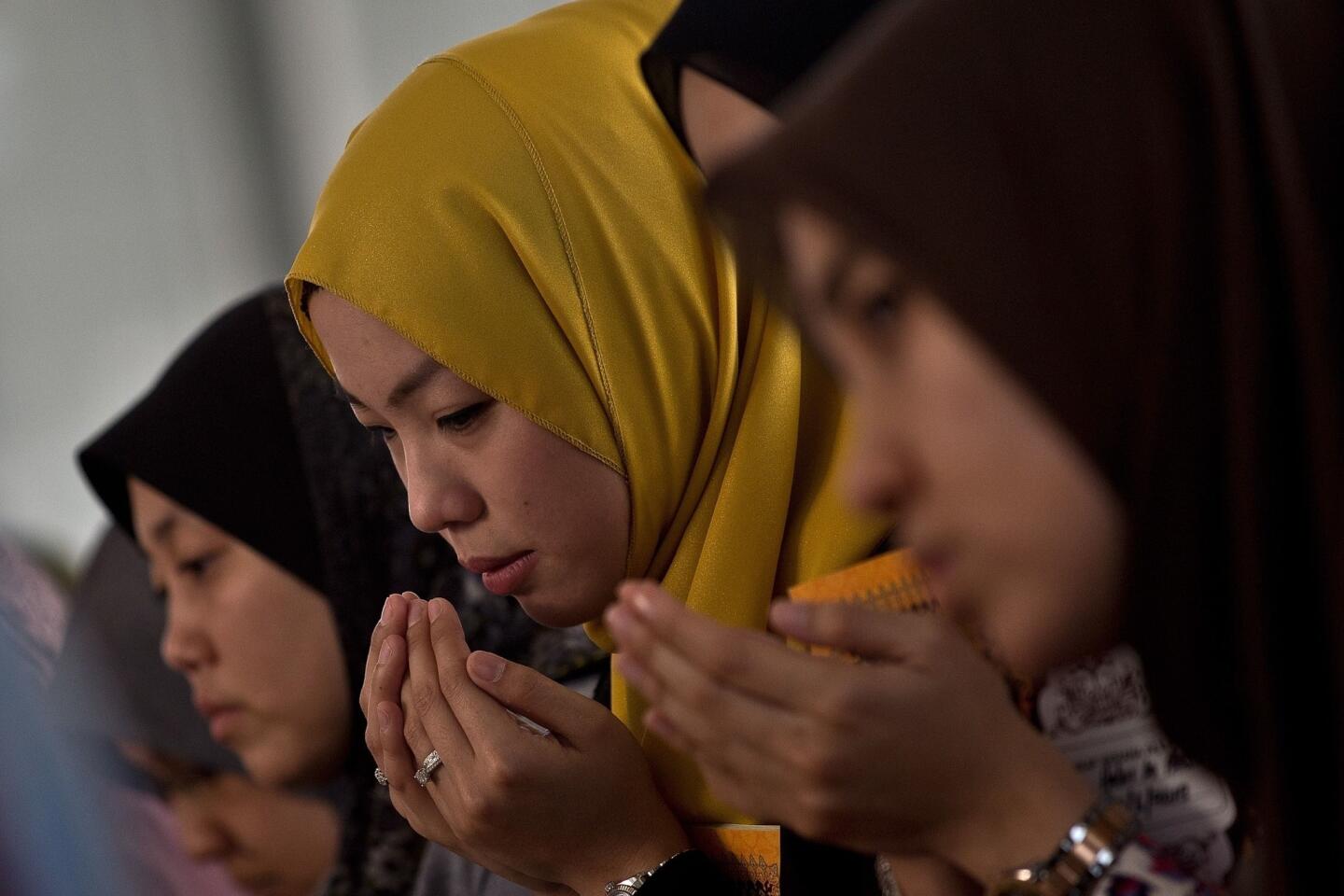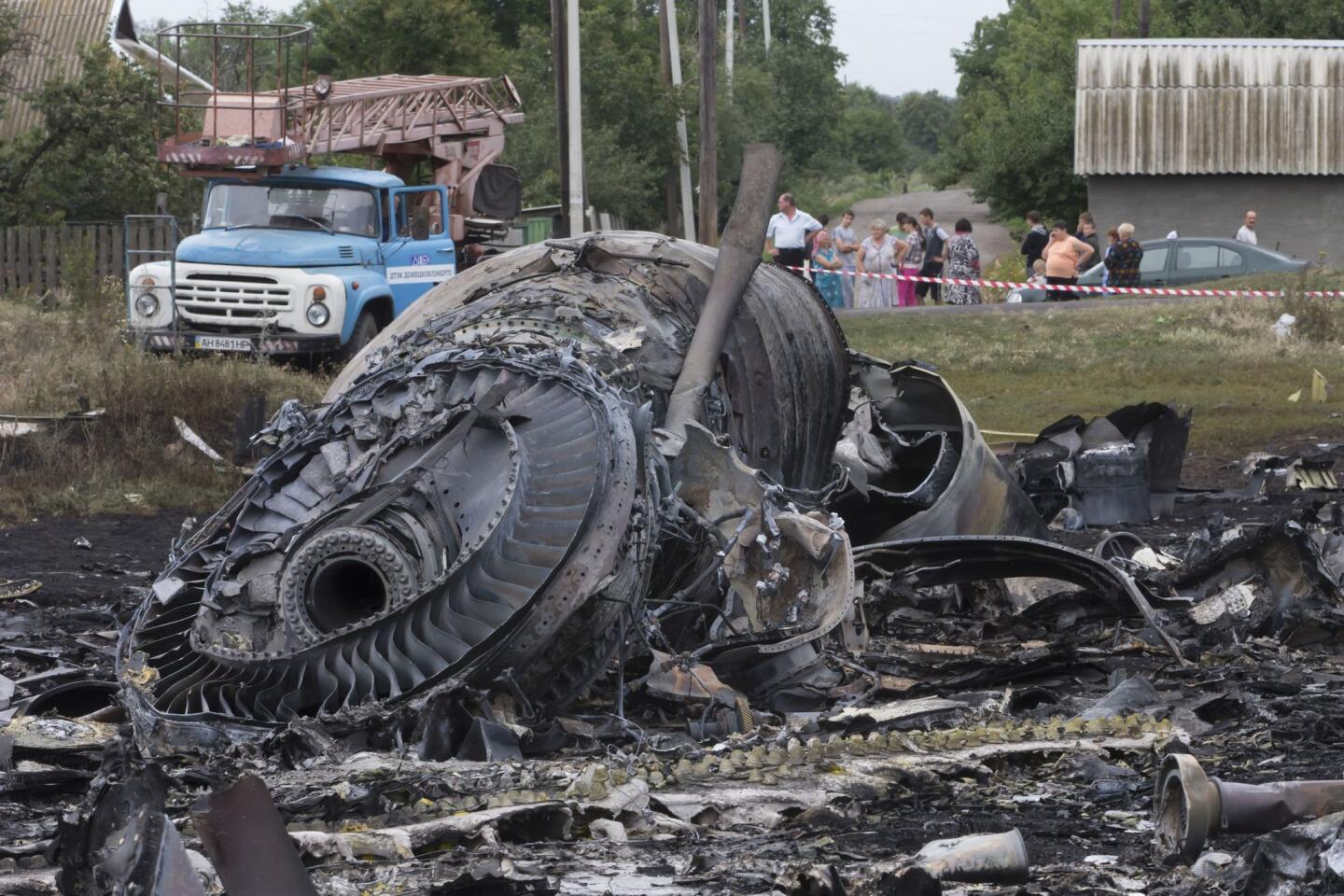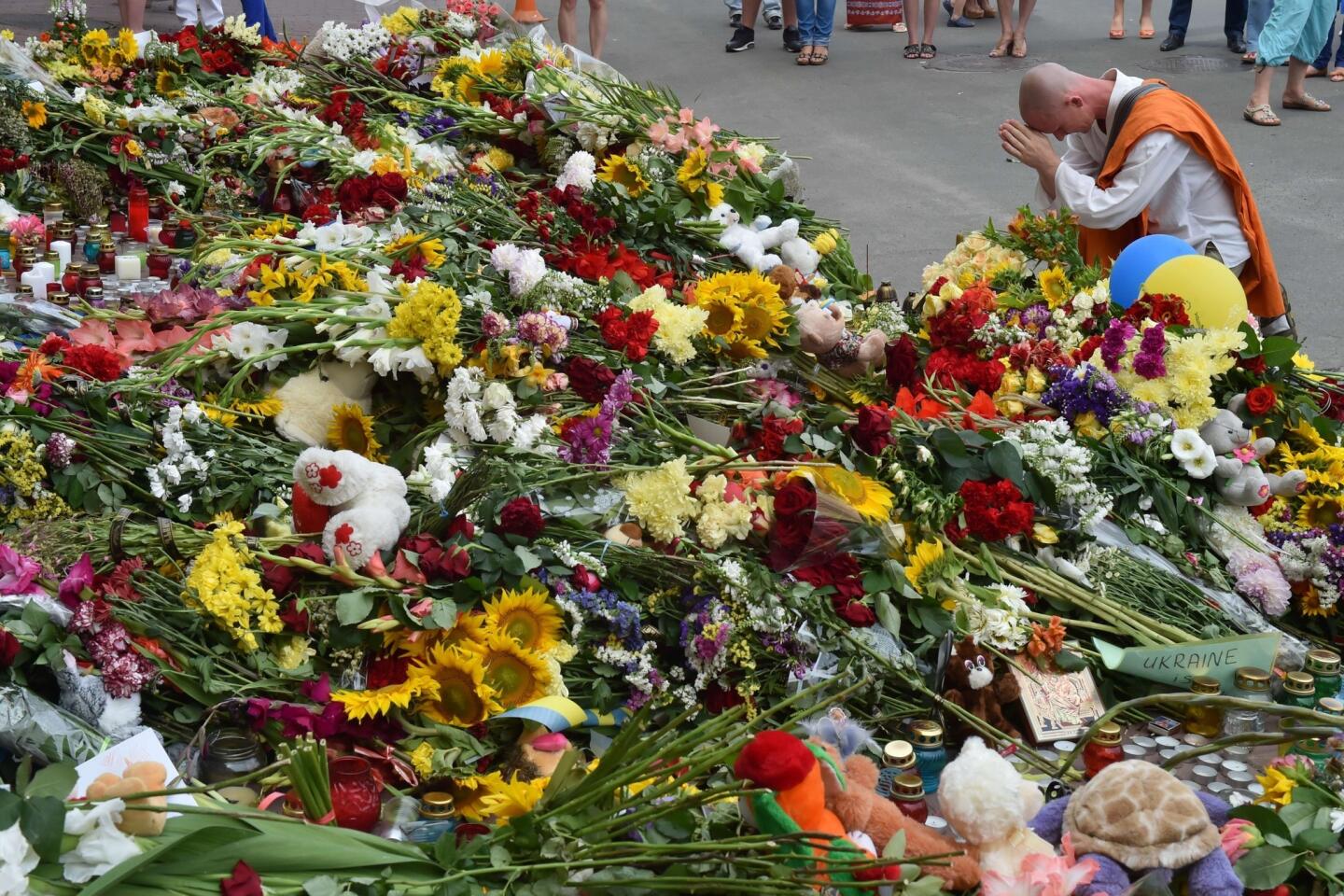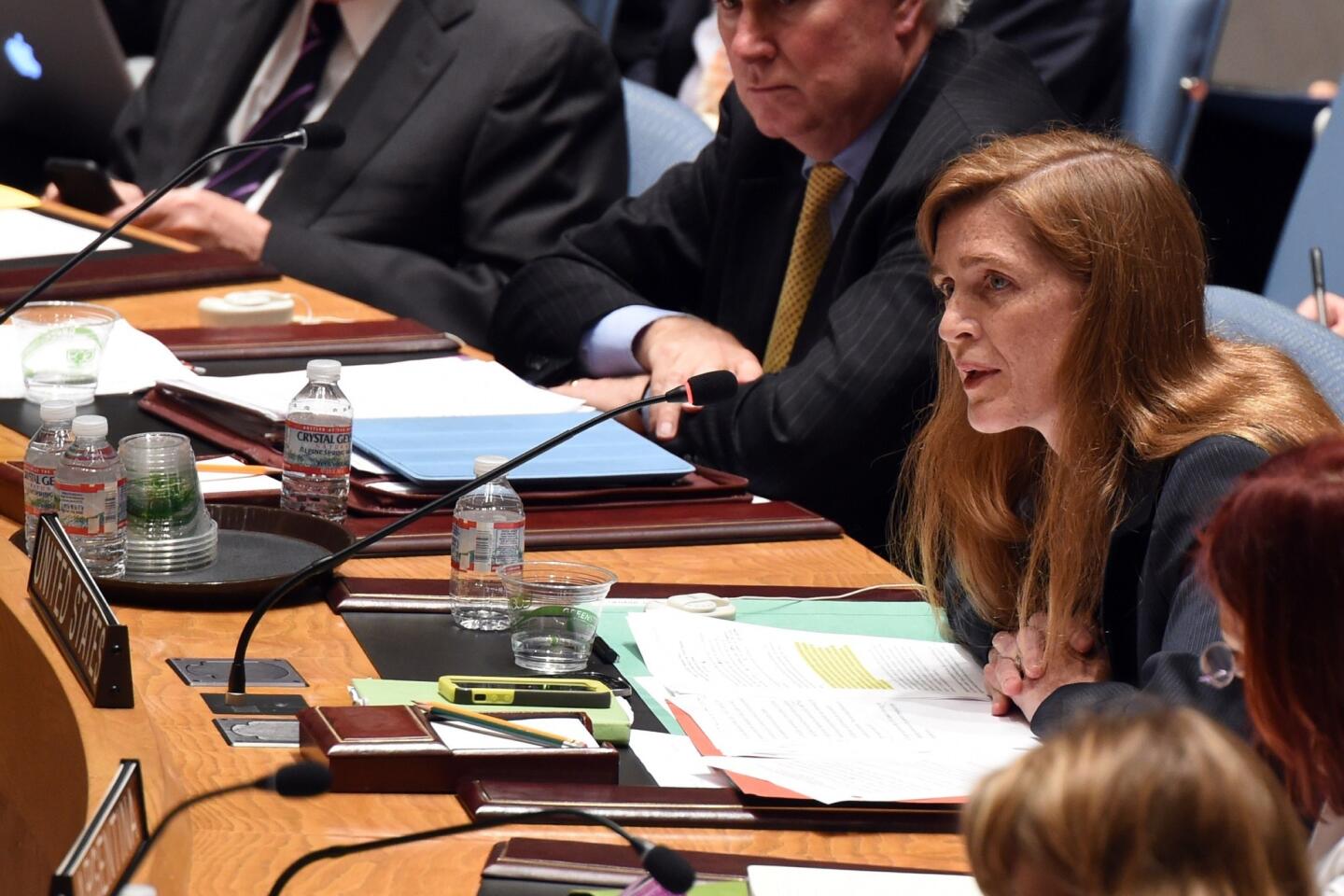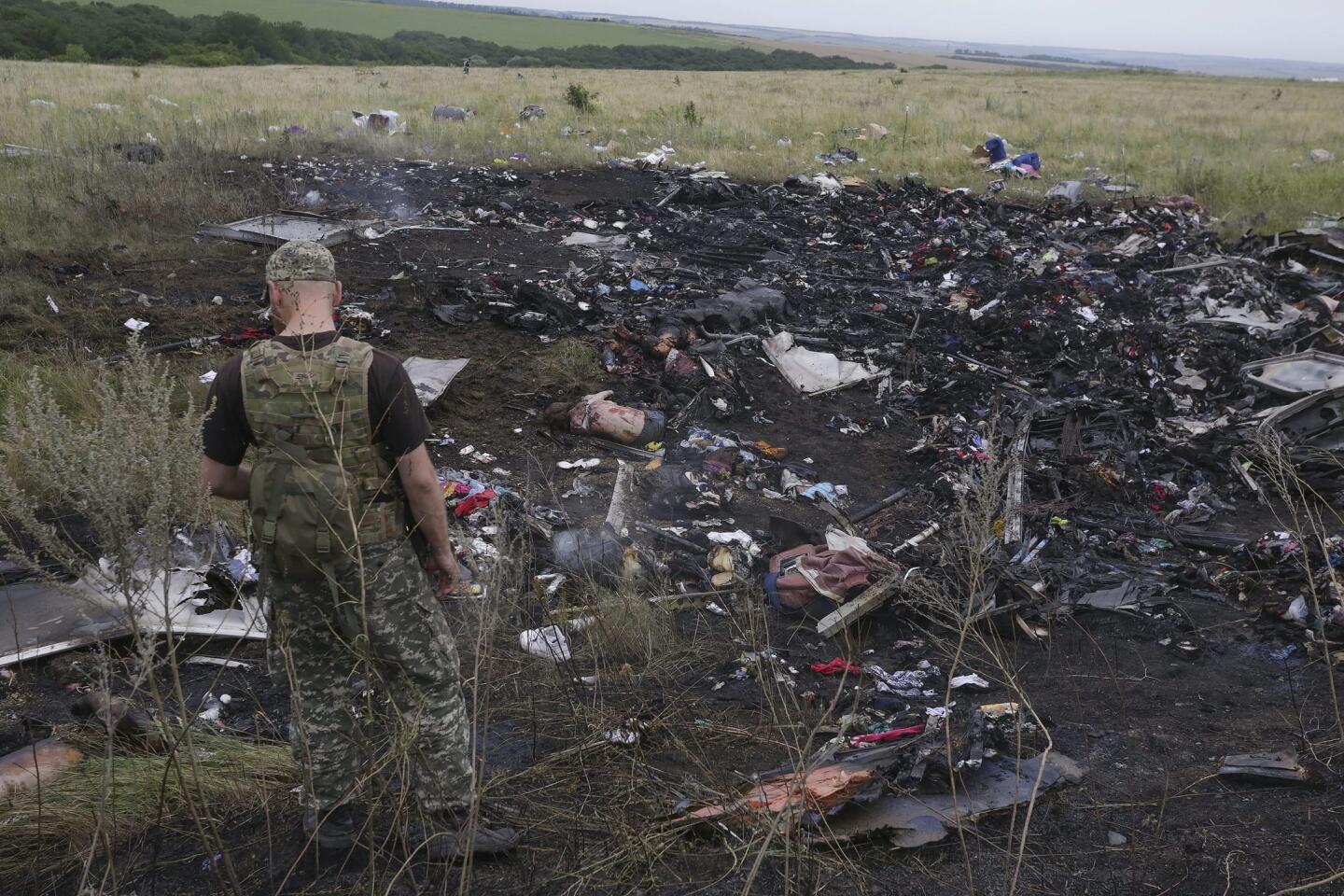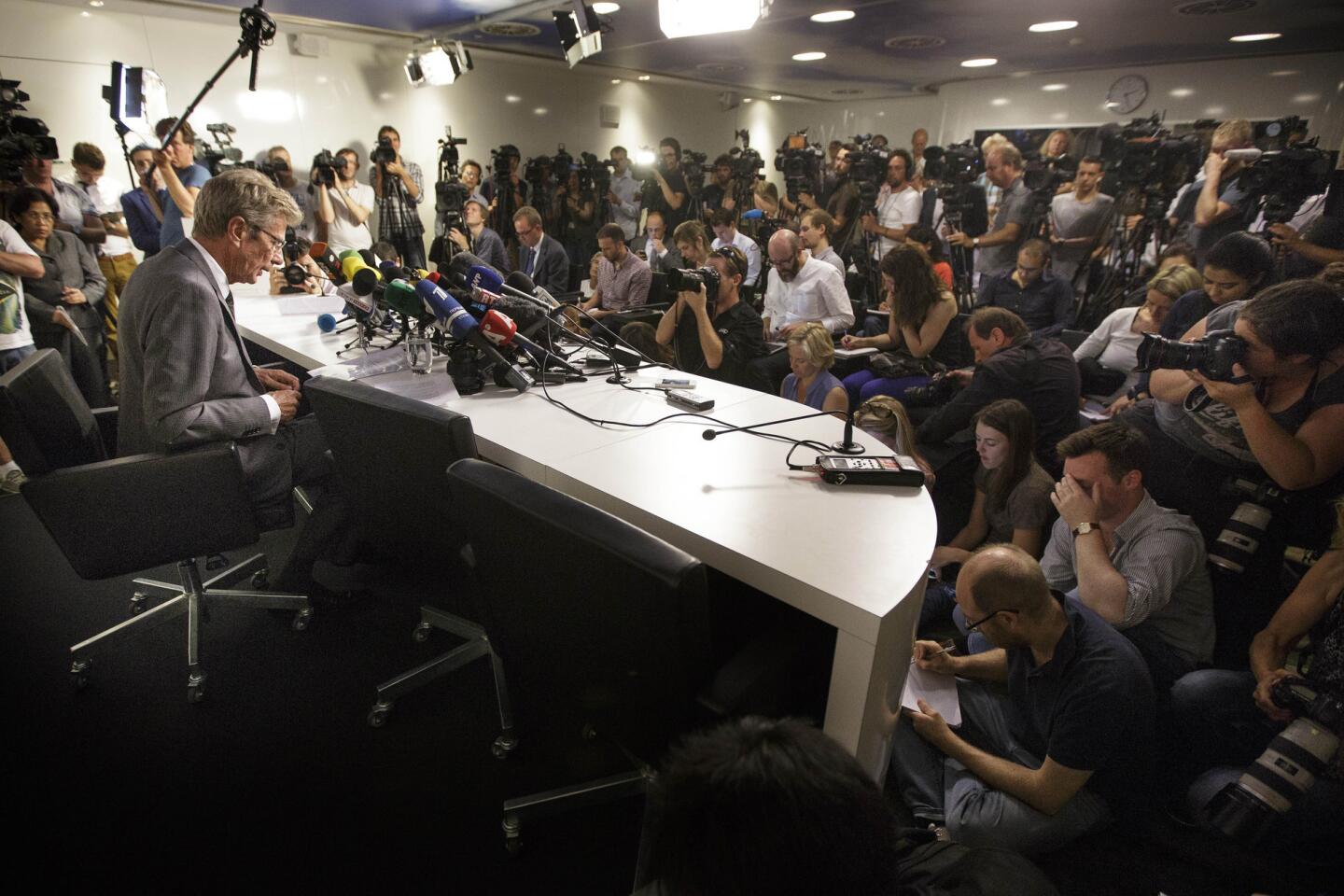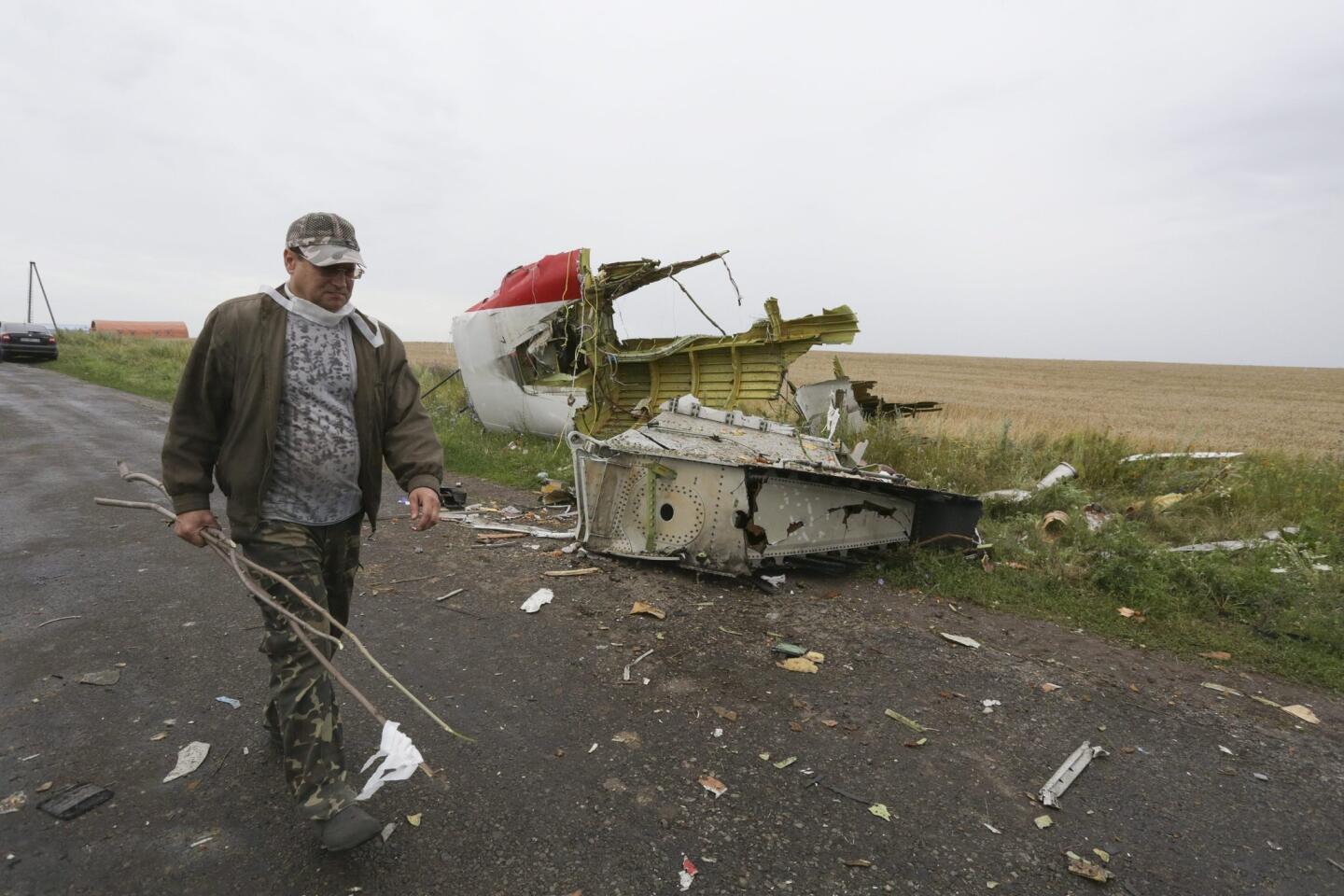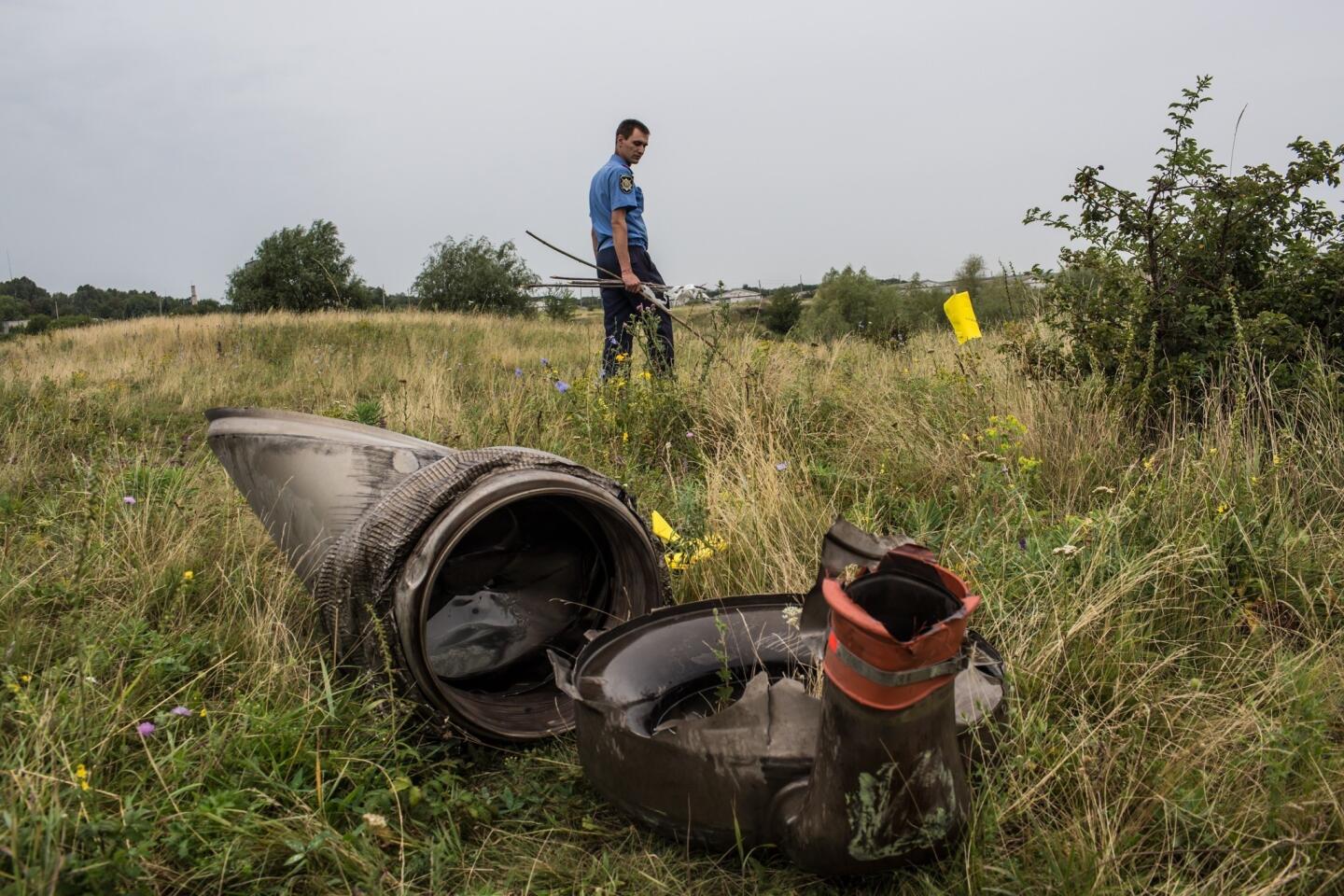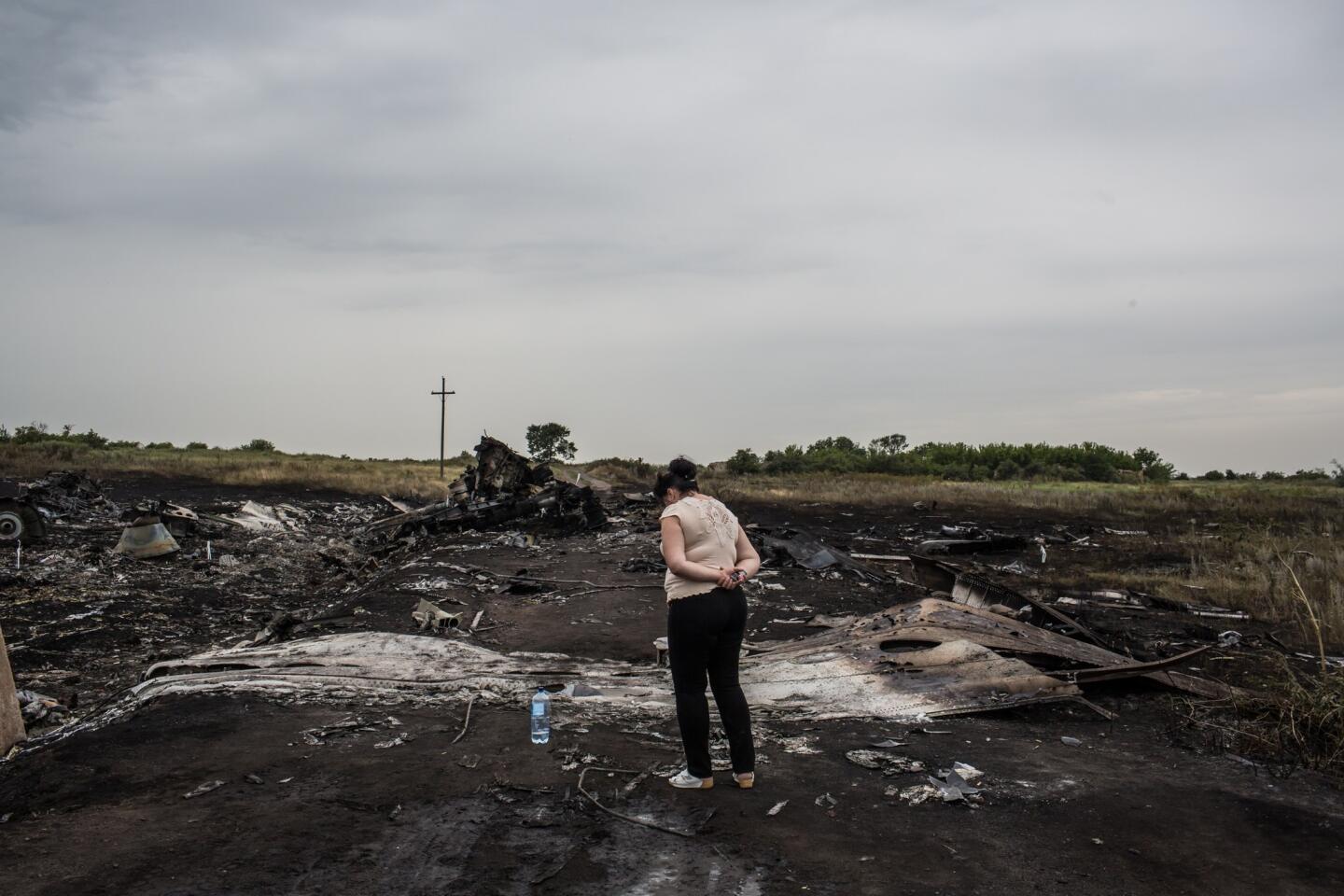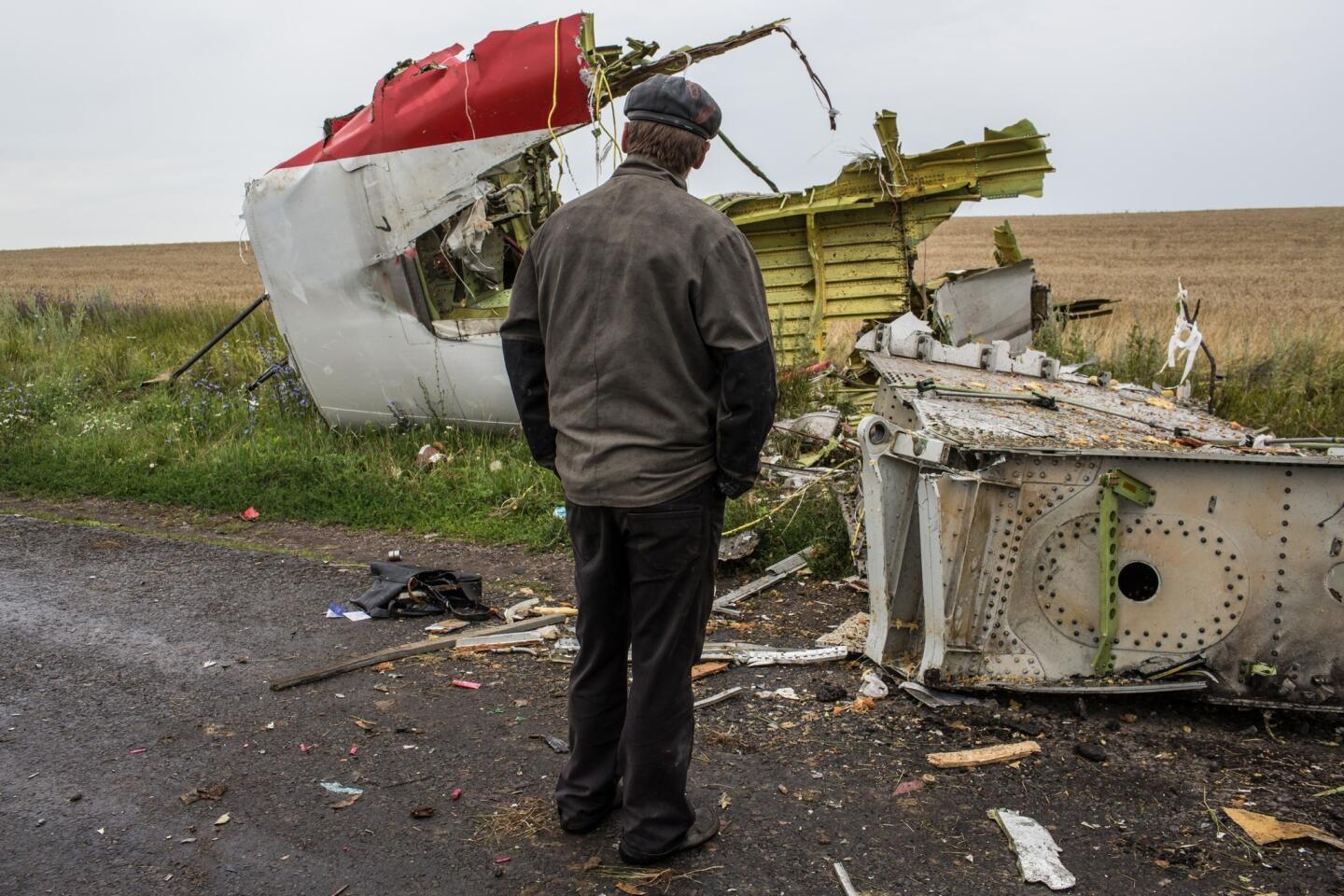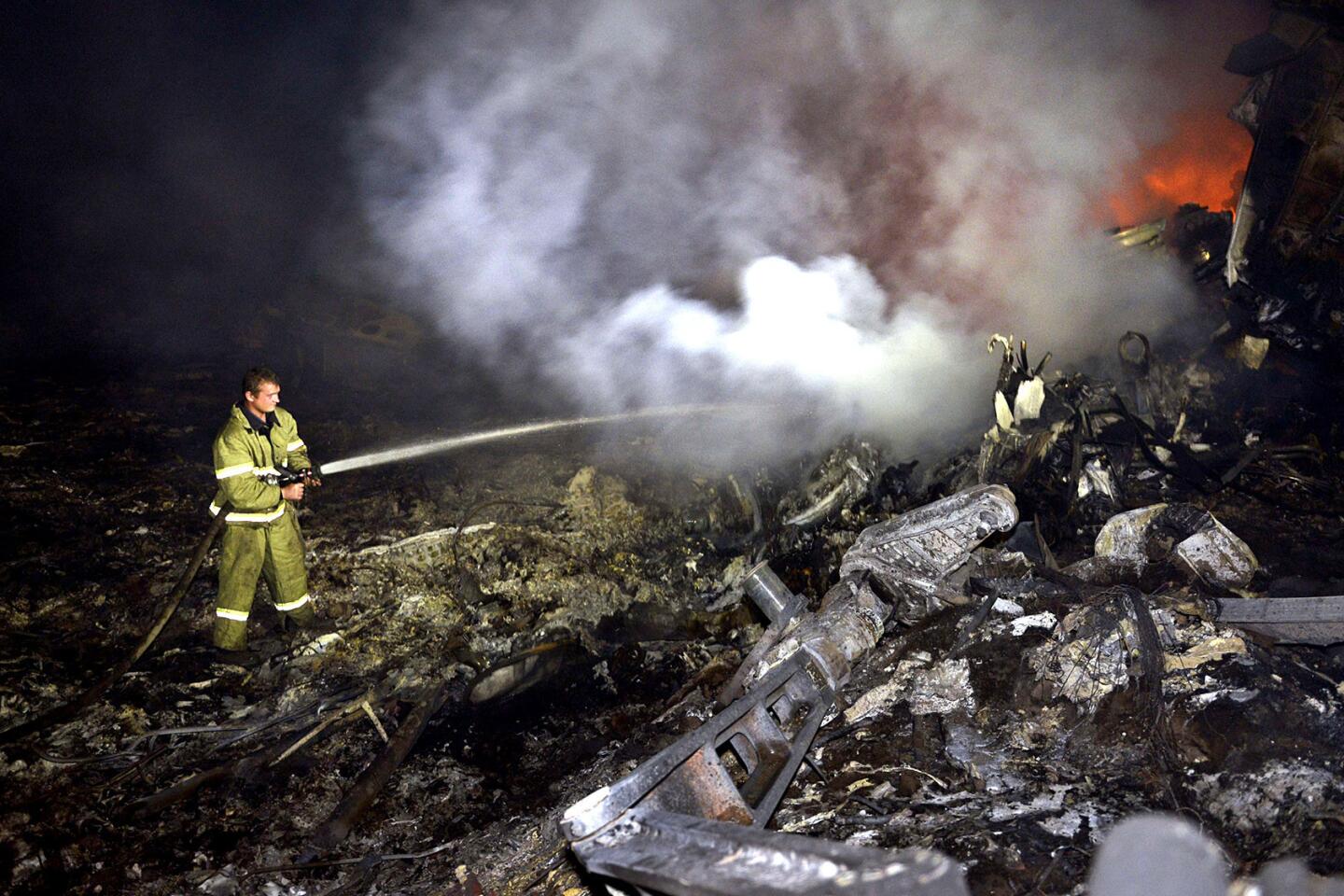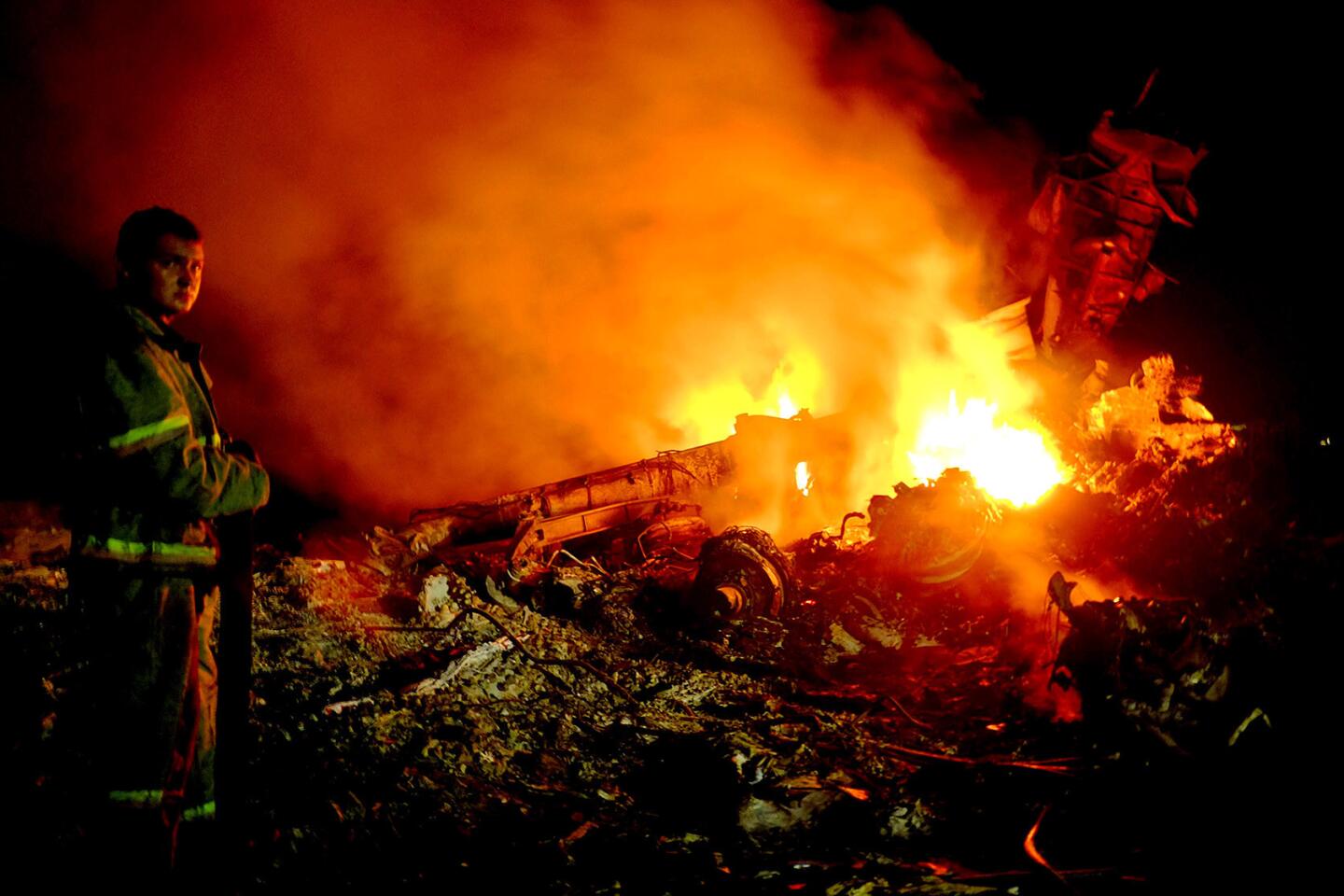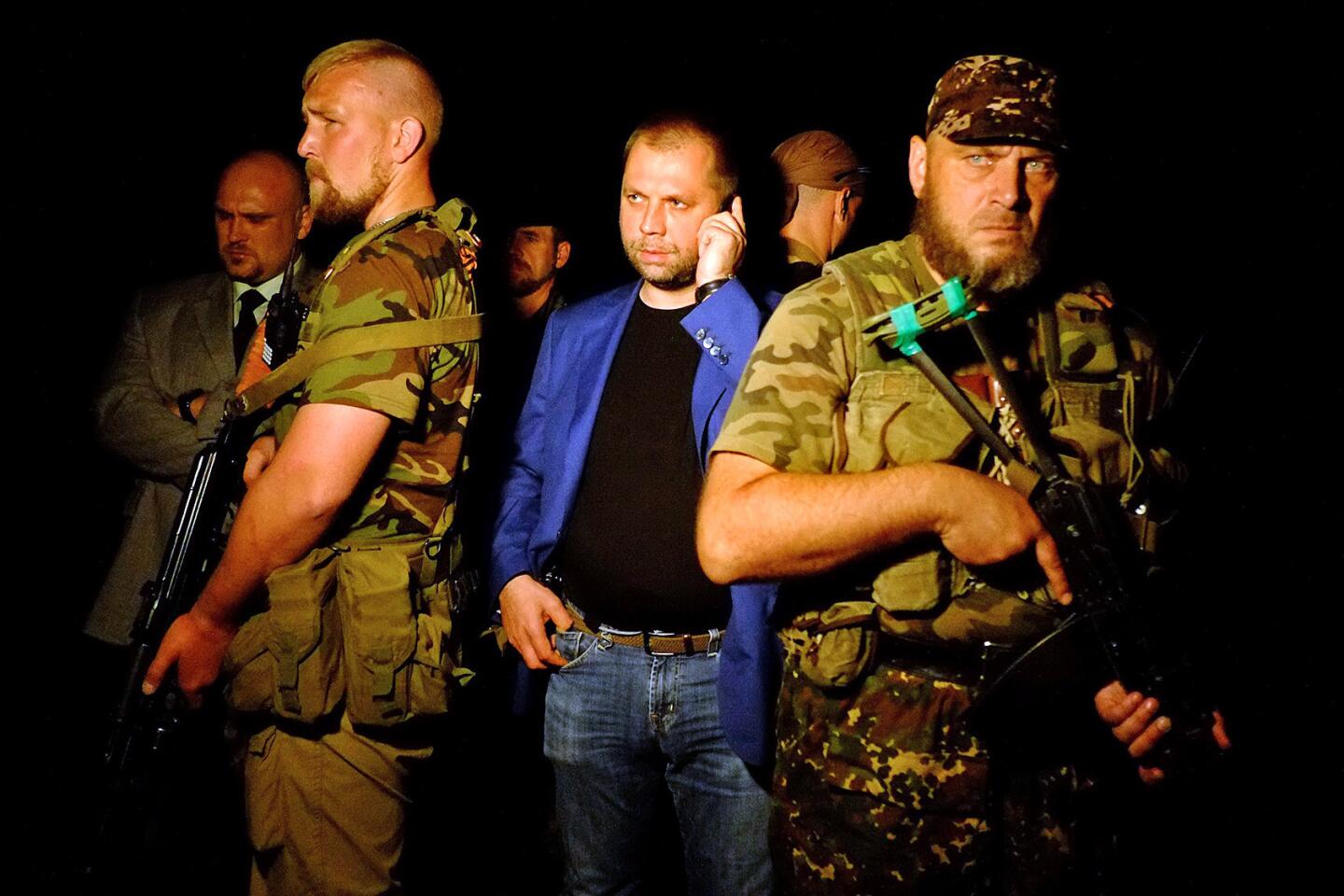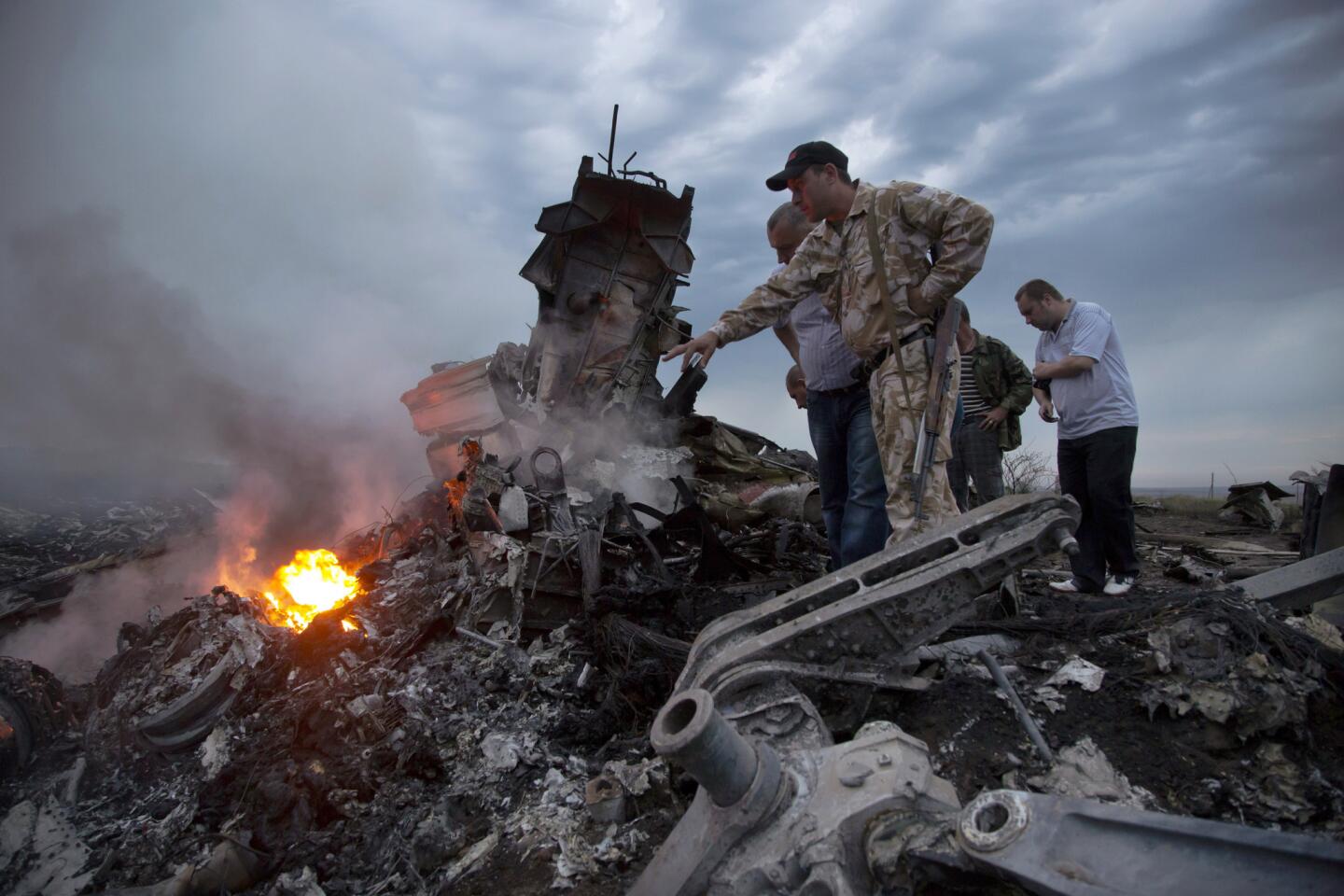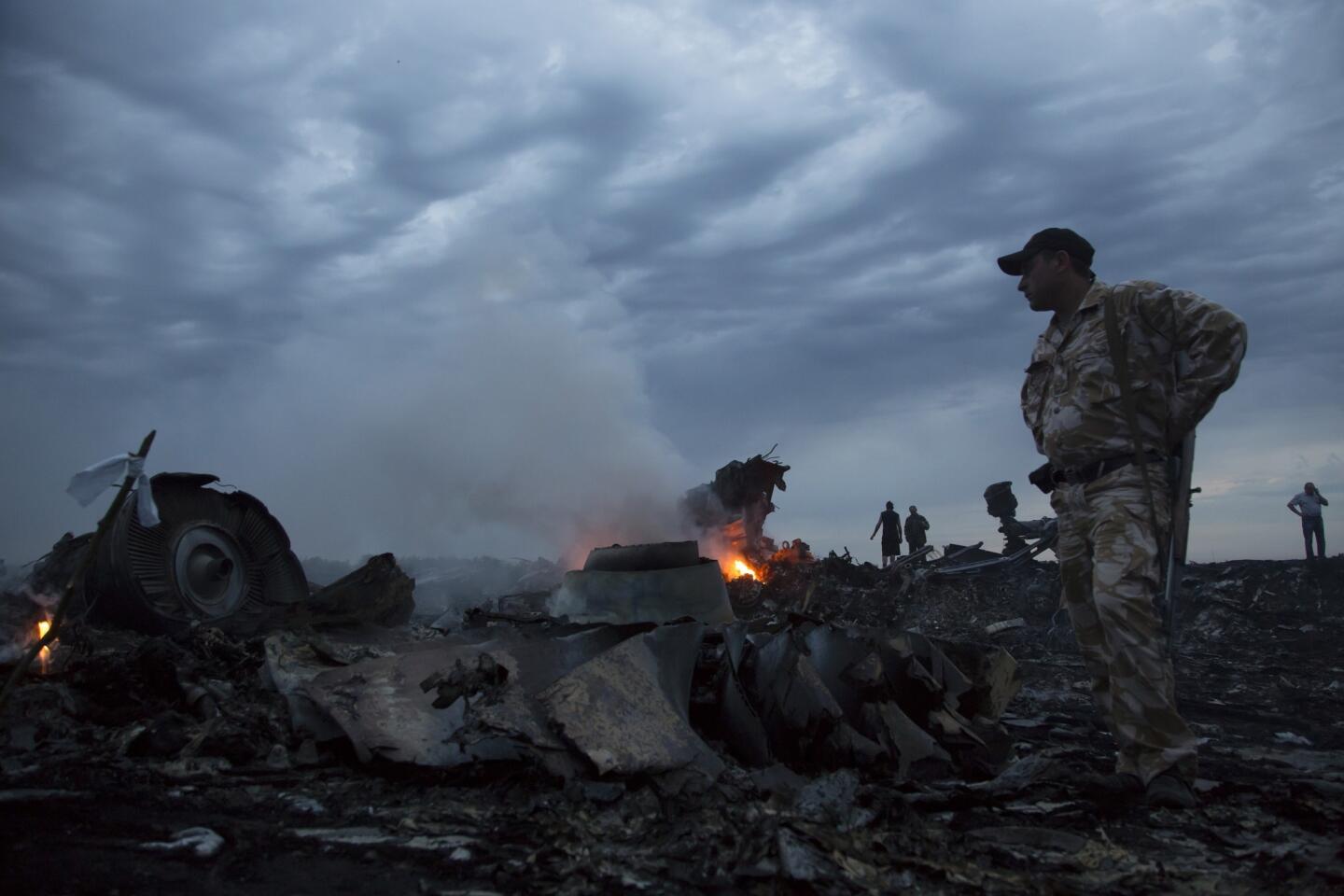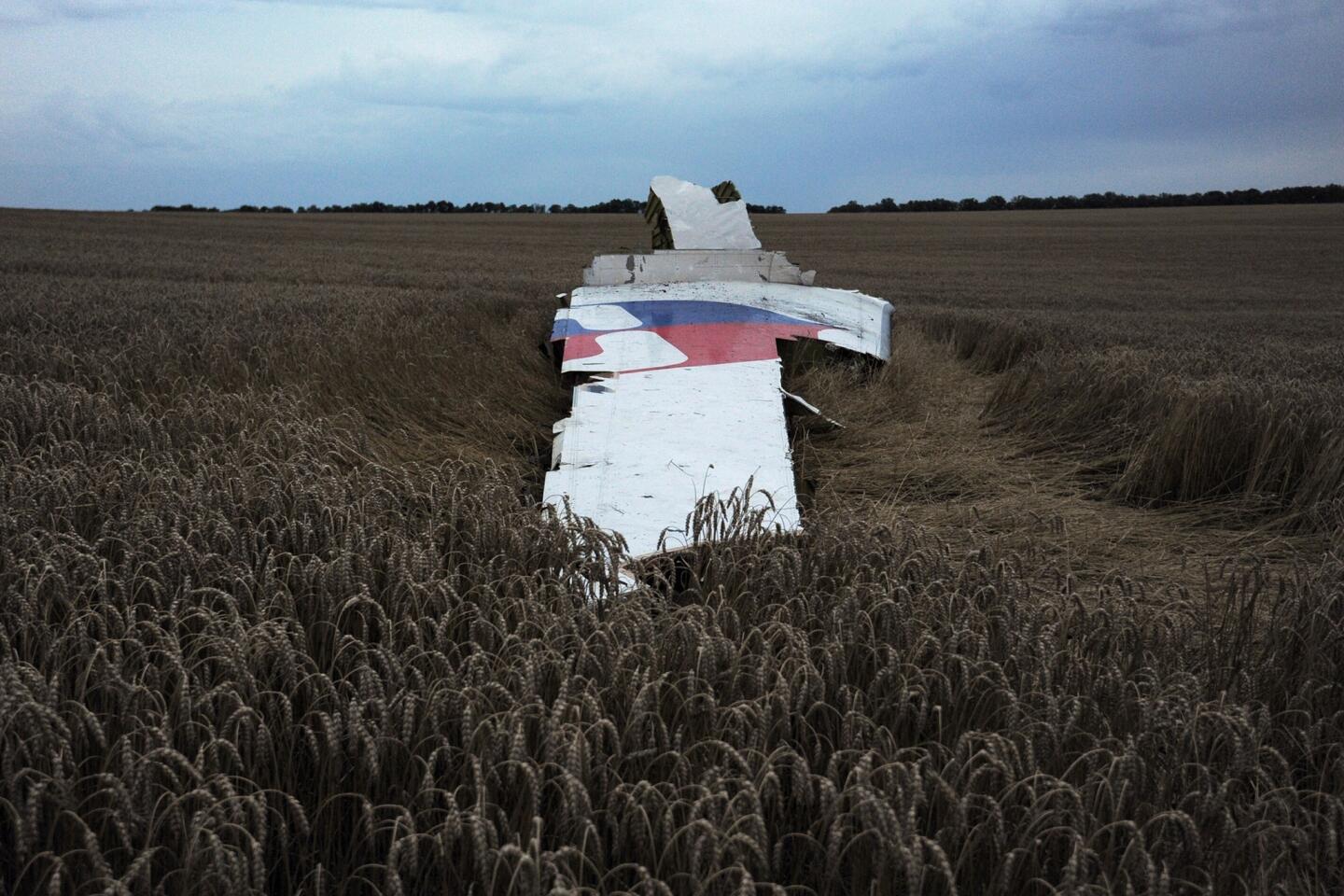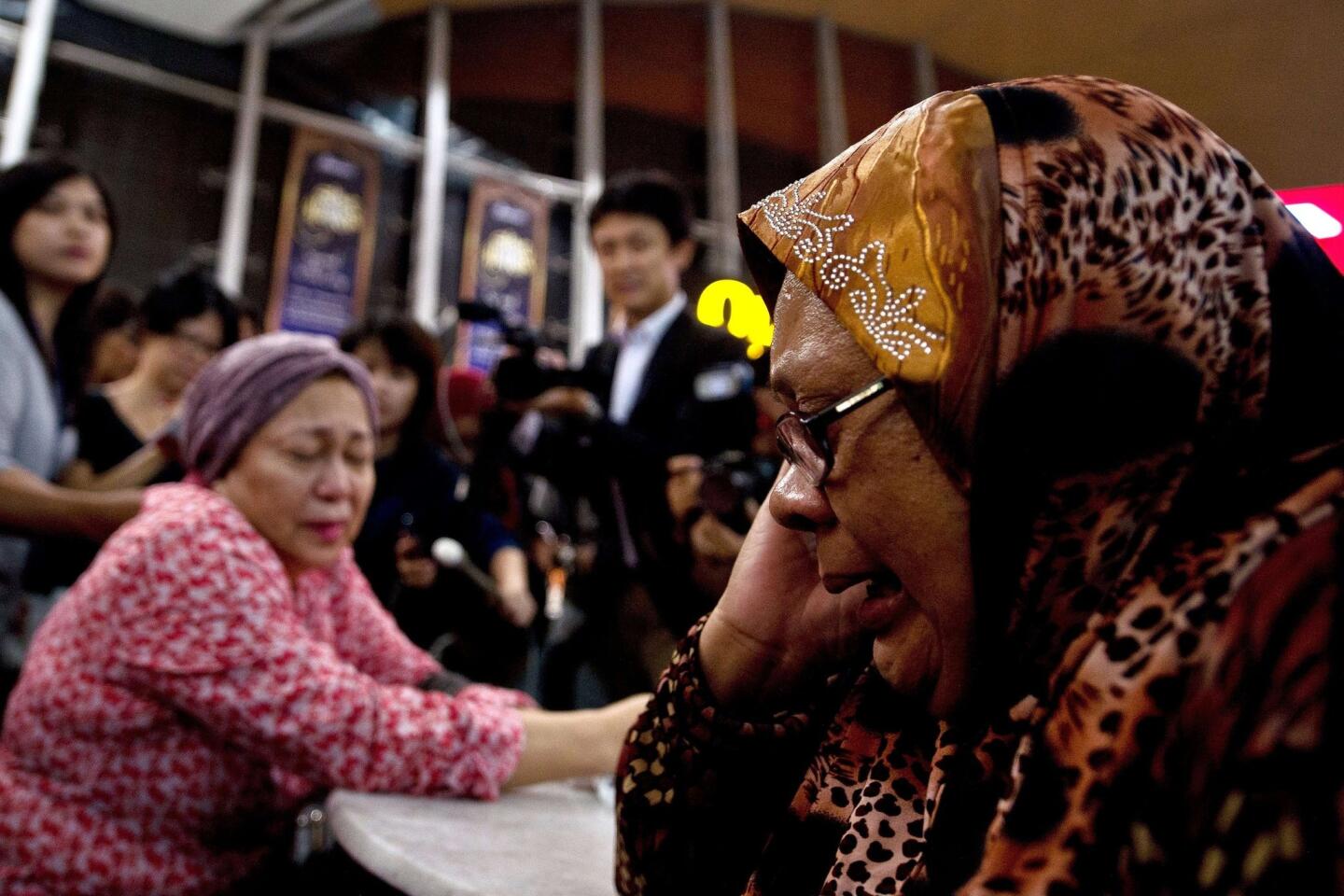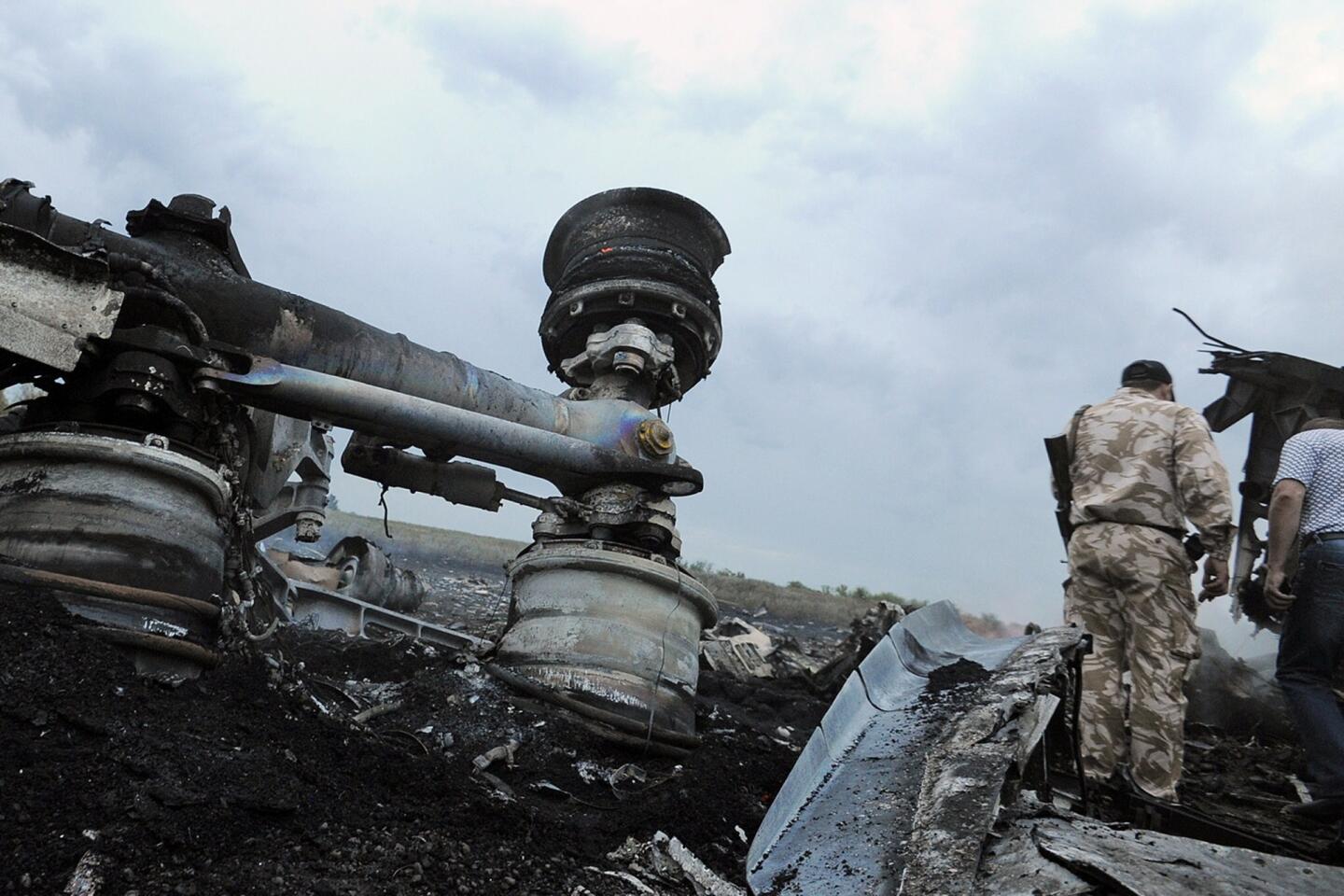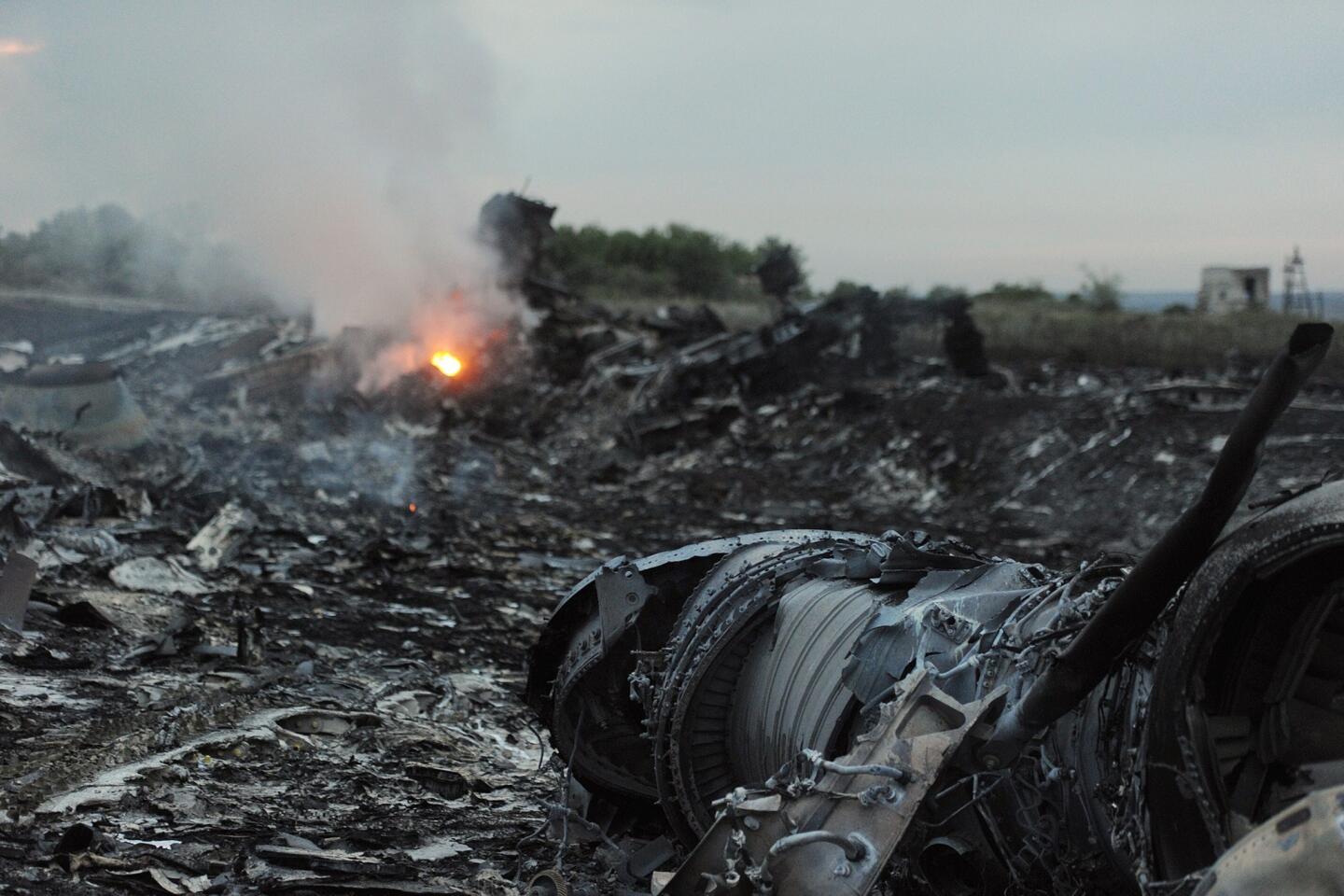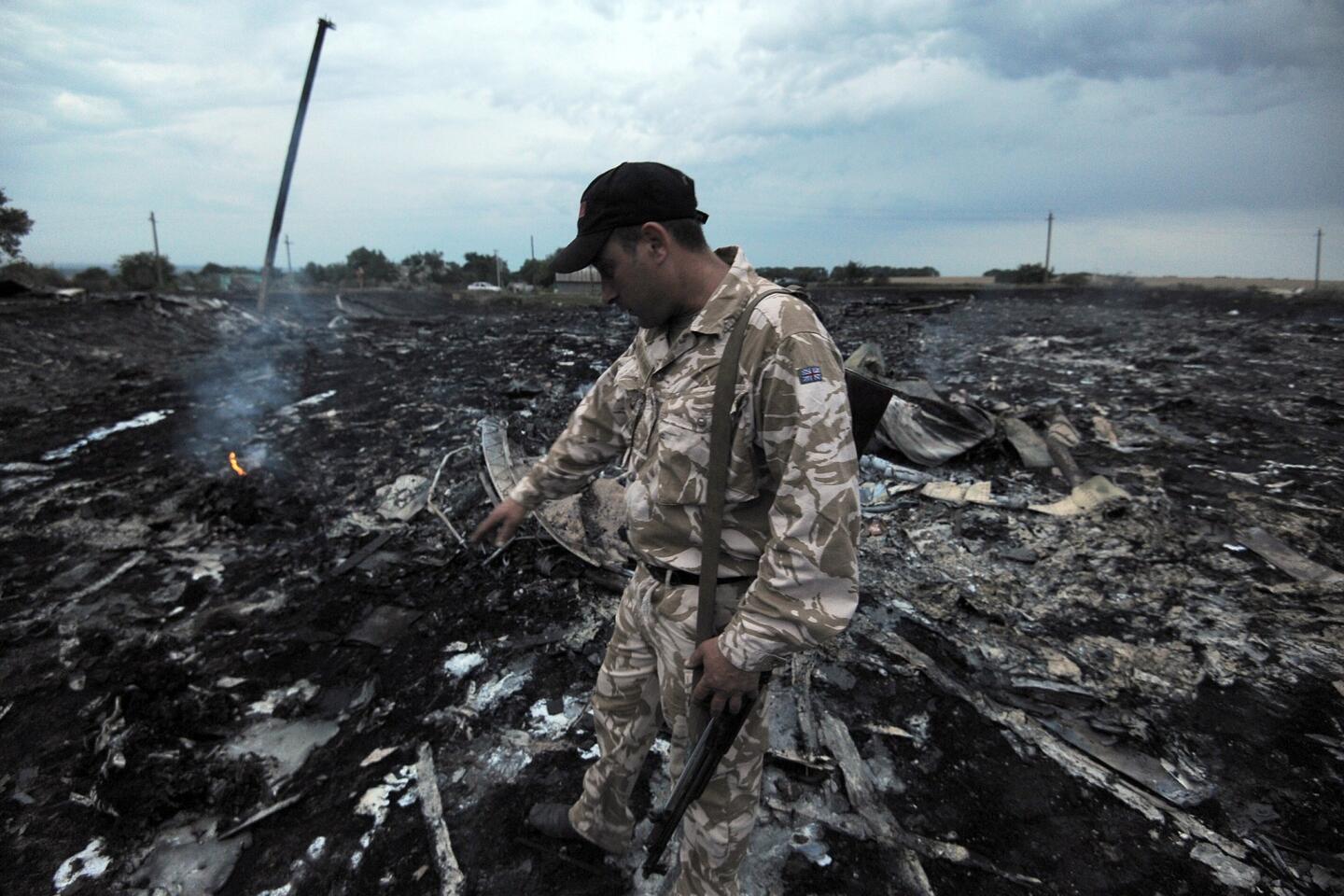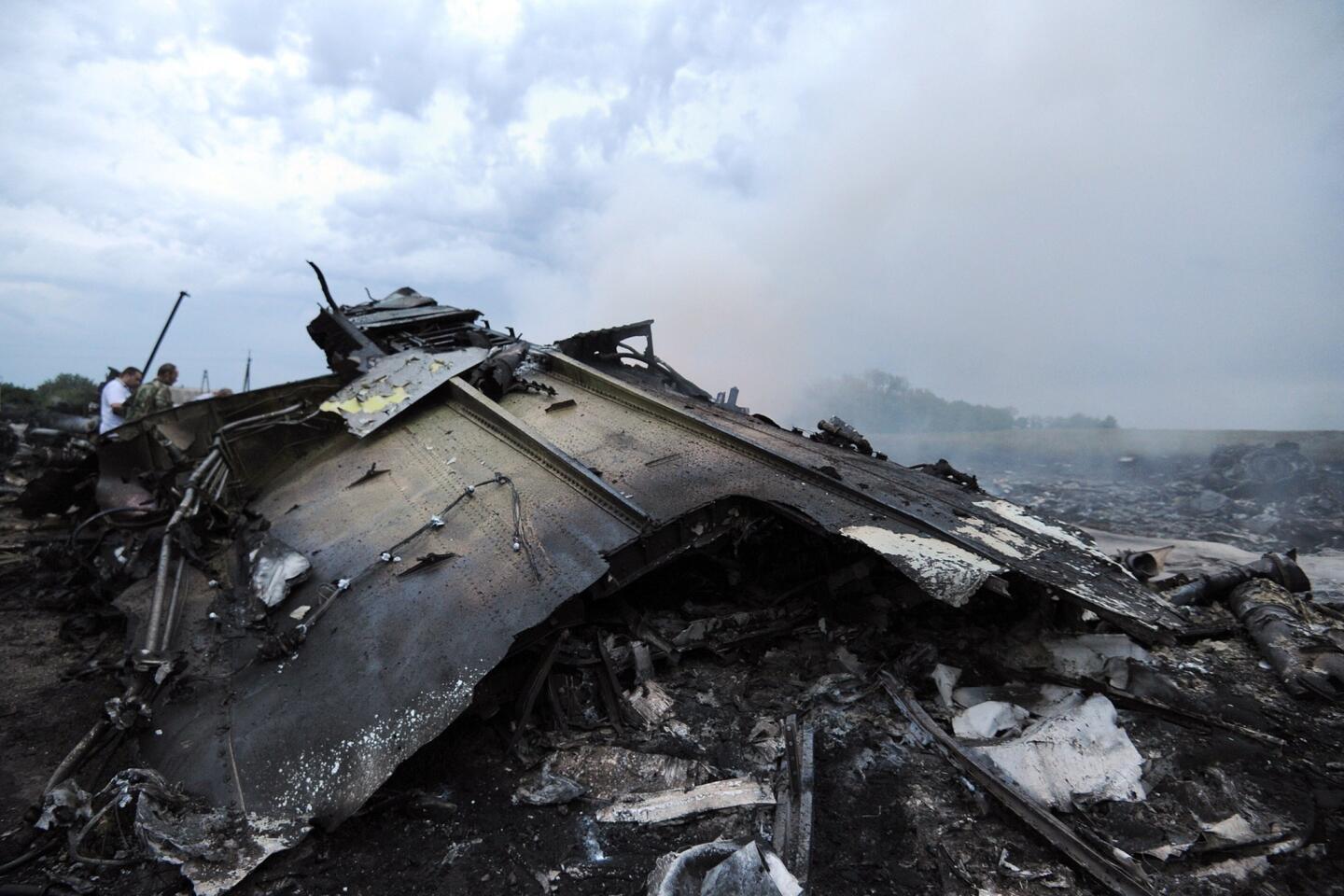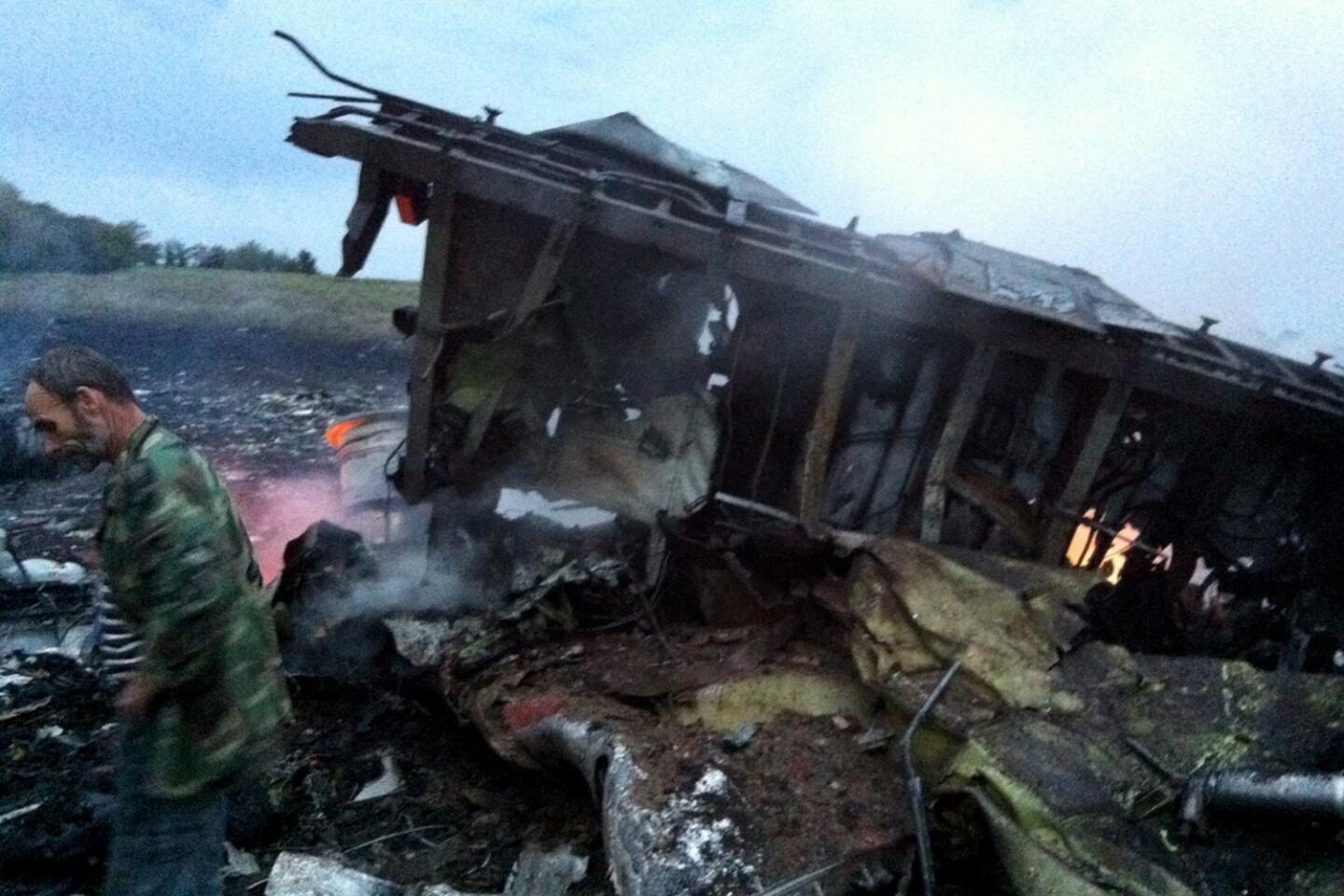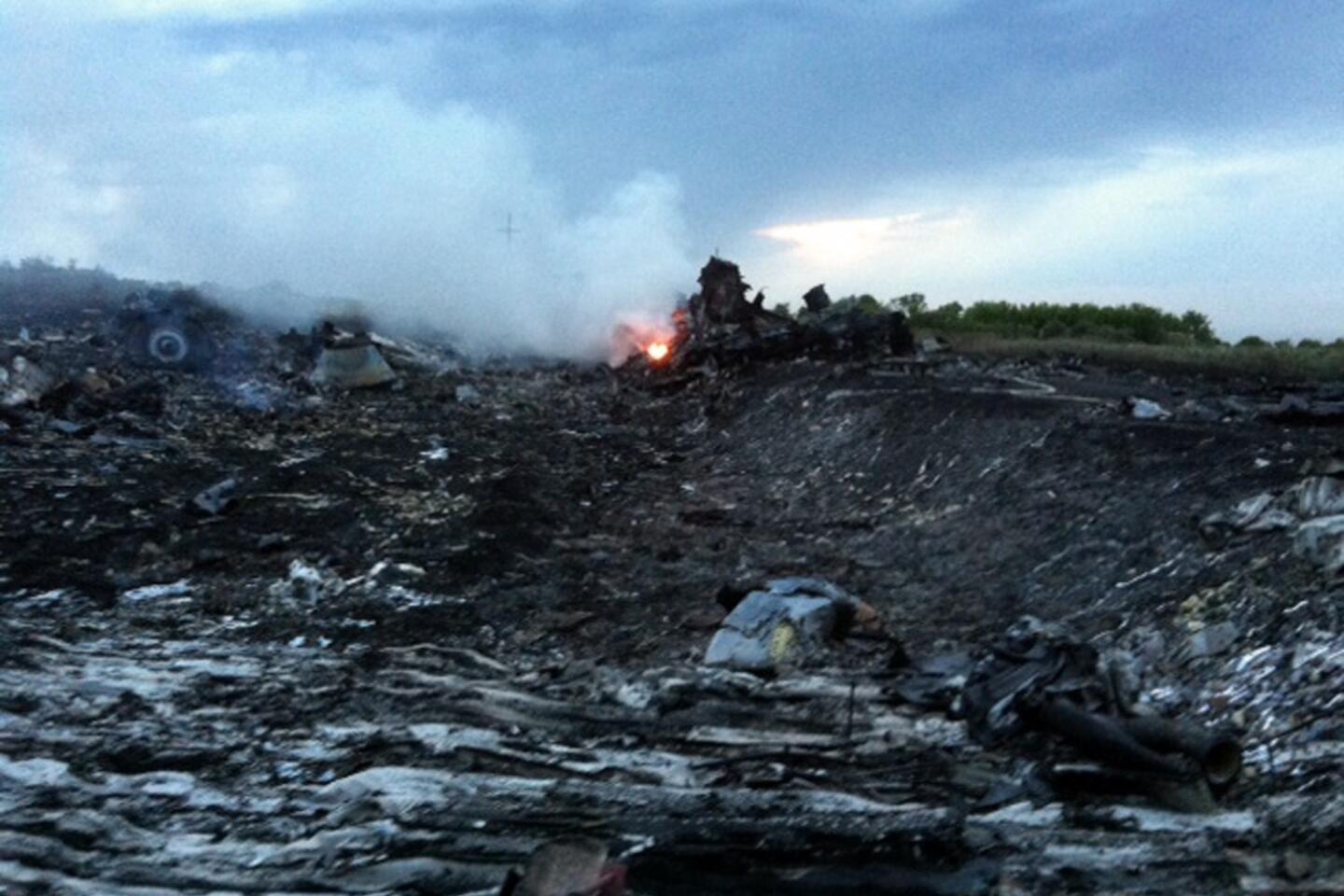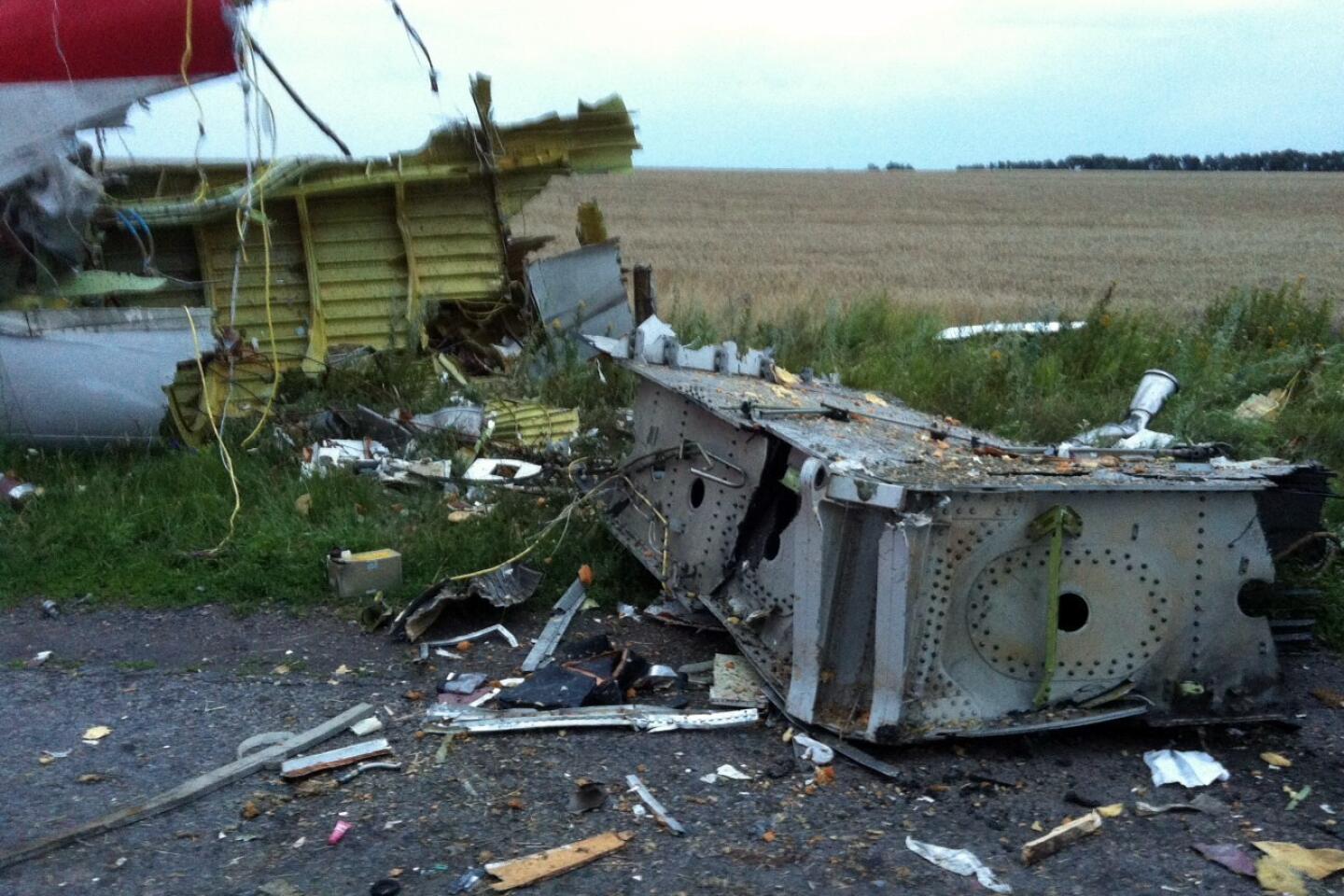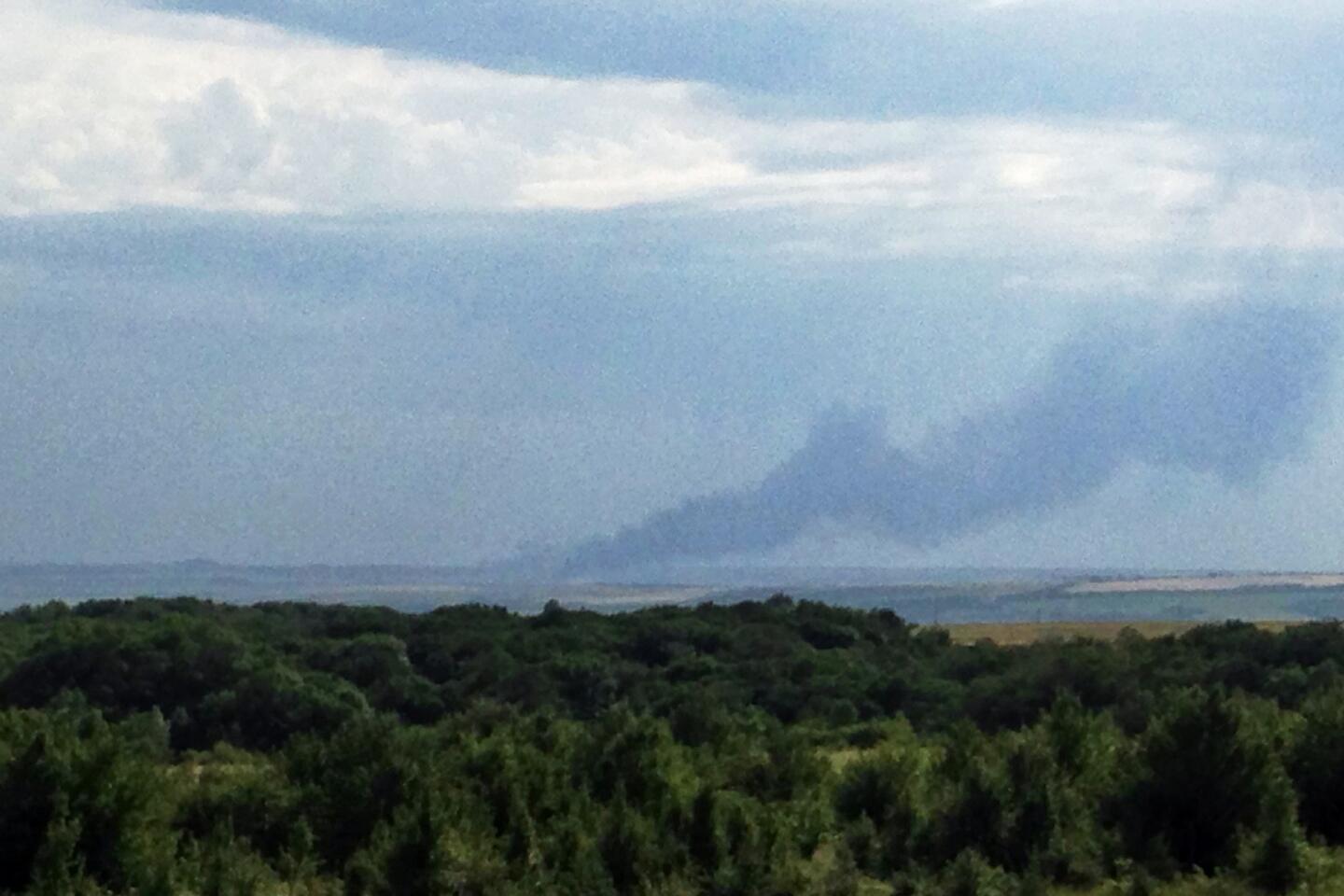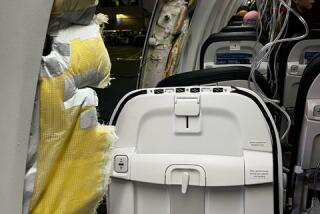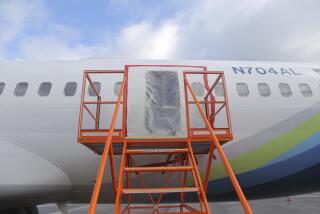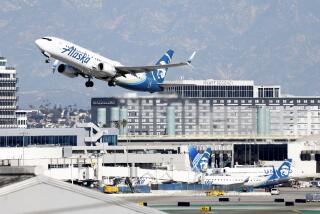Malaysia struggles to cope with second air tragedy
Malaysia reeled Friday from its second commercial air disaster this year as family members mourned passengers of a downed jetliner and investors sold off shares of a once-admired national carrier that has become a byword for calamity.
The crash of Malaysia Airlines Flight 17 – believed to have been shot down over rebel-controlled eastern Ukraine, killing all 298 passengers and crew aboard – came just four months after the airline lost a jet carrying 239 people that went missing one hour after takeoff and has not been found.
“There is a very deep sense of shock. Nothing like this has happened before,” Ben Suffian, who runs Malaysia’s leading polling organization, said in a phone interview from Kuala Lumpur, the capital.
“I think Malaysia tends to be a country that has been relatively shielded from national calamities and big disasters. The biggest event in decades was the disappearance of the earlier flight. And now this.”
For many years, the predominantly Muslim nation of 29 million people was accustomed to reading bleak news from other Muslim countries in the far-off Middle East. The crisis in Ukraine had barely registered in Malaysia compared with the violence in Gaza, Iraq and Syria, Suffian said.
The news of Flight 17 in many ways seemed like a grim rerun. Malaysians awoke Friday to more anguished faces on their television screens and watched another tense news conference in a hotel ballroom where a somber-looking transportation minister fended off questions about whether the national airline had been negligent.
Flight 17’s passengers and crew hailed from around the world – including 173 Dutch nationals, 27 Australians, 12 Indonesians, nine British and others in addition to 44 Malaysians – and contributed to a sense that this small Southeast Asian nation had again failed on the global stage.
“The media coverage so far has been trying to understand what really happened…but the wider sense, which hasn’t emerged yet, is a sense of helplessness and being out of depth in terms of how to address the issue,” Suffian said.
The crash cast a pall over the Muslim holy month of Ramadan, marked by daylong fasting that ends with celebratory dinners after sundown. A 72-year-old woman, Jamilah Noriah Abang Anuar, who lost her daughter, son-in-law and four grandchildren on Flight 17, said they would have been home in time to break the fast with her on Friday.
“This tragedy shatters me,” Anuar told the New Straits Times newspaper.
At Friday’s news conference, Transportation Minister Liow Tiong Lai, who recently took over the post from the official who led the much-criticized search for the missing Flight 370, defended the airline’s decision to fly over eastern Ukraine, which many international carriers have avoided due to the ongoing violence.
“This route is an approved route,” Lai said.
The International Civil Aviation Organization has not ordered airlines to cease using the route despite ongoing violence in Ukraine, which has been racked by a rebellion by pro-Russian separatists. The heavily armed rebels have previously shot down Ukrainian military planes using surface-to-air missiles.
Lai said the flight path over Ukraine – long one of the busiest air corridors for commercial aircraft bound from Europe to Asia – was used by 15 of 16 members of the Assn. of Asia Pacific Airlines, to which Malaysia Airlines belongs. The airline said Friday that it would start using alternative routes.
But Lai refused to answer questions about how Malaysia could cope with a second commercial air crash.
“That will be a separate issue,” Lai said. “Our focus is just MH 17.”
Malaysia Airlines isn’t the first carrier to face air disasters in such quick succession. American Airlines lost two planes in the terrorist attacks of Sept. 11, 2001, and then had another plane crash in Queens, N.Y., two months later, killing more than 250 people.
But analysts say the twin disasters are a massive psychic and financial blow to a carrier that was already on shaky ground.
“For Malaysia Airlines, it’s truly unprecedented. There’s no rule book as to how they recover from this,” said Oliver Lamb, managing director of Pacific Aviation Consulting in Sydney, Australia.
The airline, which is state-controlled but publicly traded, has suffered three years of continuous losses starting in 2011. It went $360 million in the red in 2013 and reported a $139-million loss in the first quarter of 2014. The airline’s share price dropped 11% on Friday.
Since Flight 370 vanished en route from Kuala Lumpur to Beijing in March, the carrier has seen a significant drop-off in passengers, particularly from China. The airline said Friday that it would allow passengers holding tickets to cancel their itineraries and receive a full refund or change their plans without penalty through July 24.
A government bailout or other intervention has been raised in recent months as a possible measure and Lamb said “the next few weeks will determine if bankruptcy or further government support is necessary.”
Investigations could eventually absolve the airline of culpability in both incidents, but the outstanding questions surrounding Flight 370, which is believed to have crashed in the Pacific Ocean but whose wreckage has not been found, make it difficult for customers and others to regain trust.
In the case of Flight 17, scrutiny is likely to focus on whether the airline acted prudently by flying over a known conflict zone. The airline also will likely face questions over its handling of passengers’ next of kin and the timely release of information. After Flight 370 went missing, the carrier faced sharp complaints, particularly in China, that it was failing to provide sufficient updates and compensation to family members.
Malaysia Airlines may now be dealing with more than 500 families affected by the two disasters. Malaysian officials said Friday they would dispatch 62 people to Kiev to assist in post-crash efforts.
Mark Dombroff, an attorney at McKenna Long & Aldridge in Virginia, who specializes in aviation issues, said the psychic strains on the organization are profound. The airline has lost more than two dozen employees in the back-to-back disasters, he noted.
“The mental and emotional toll this takes on the company and the employees is intense,” he said.
One employee, flight attendant Intan Maizura Othman, had her husband vanish aboard Flight 370. In May she gave birth to the couple’s second child, a boy named Muhammad.
On Thursday she tweeted: “Lost my husband on #mh370 and now lost my friends on #prayformh17.” In a follow-up message, she wrote: “How [do] u expect me to fly??? I think I will hang [up] my uniform very soon.”
Staff writers Makinen reported from Beijing and Bengali from Mumbai, India. Special correspondent Parth M.N. contributed to this report from Mumbai.
For more news from South Asia, follow @SBengali on Twitter
More to Read
Start your day right
Sign up for Essential California for news, features and recommendations from the L.A. Times and beyond in your inbox six days a week.
You may occasionally receive promotional content from the Los Angeles Times.
